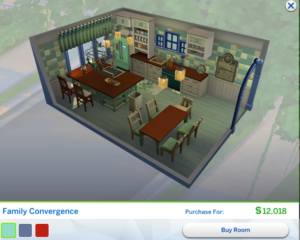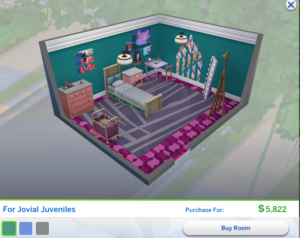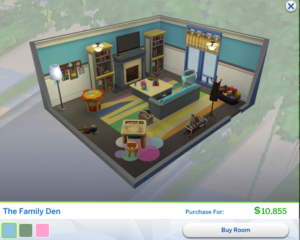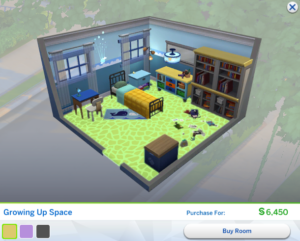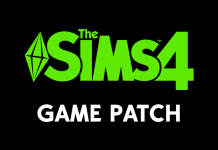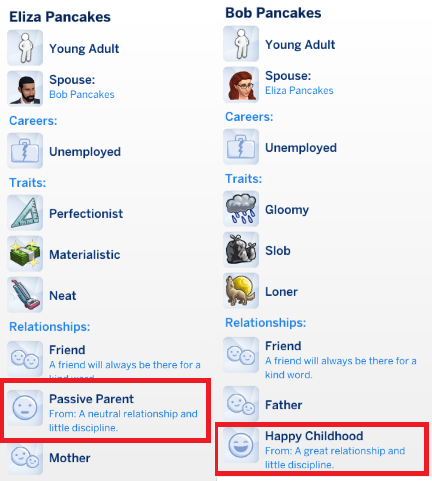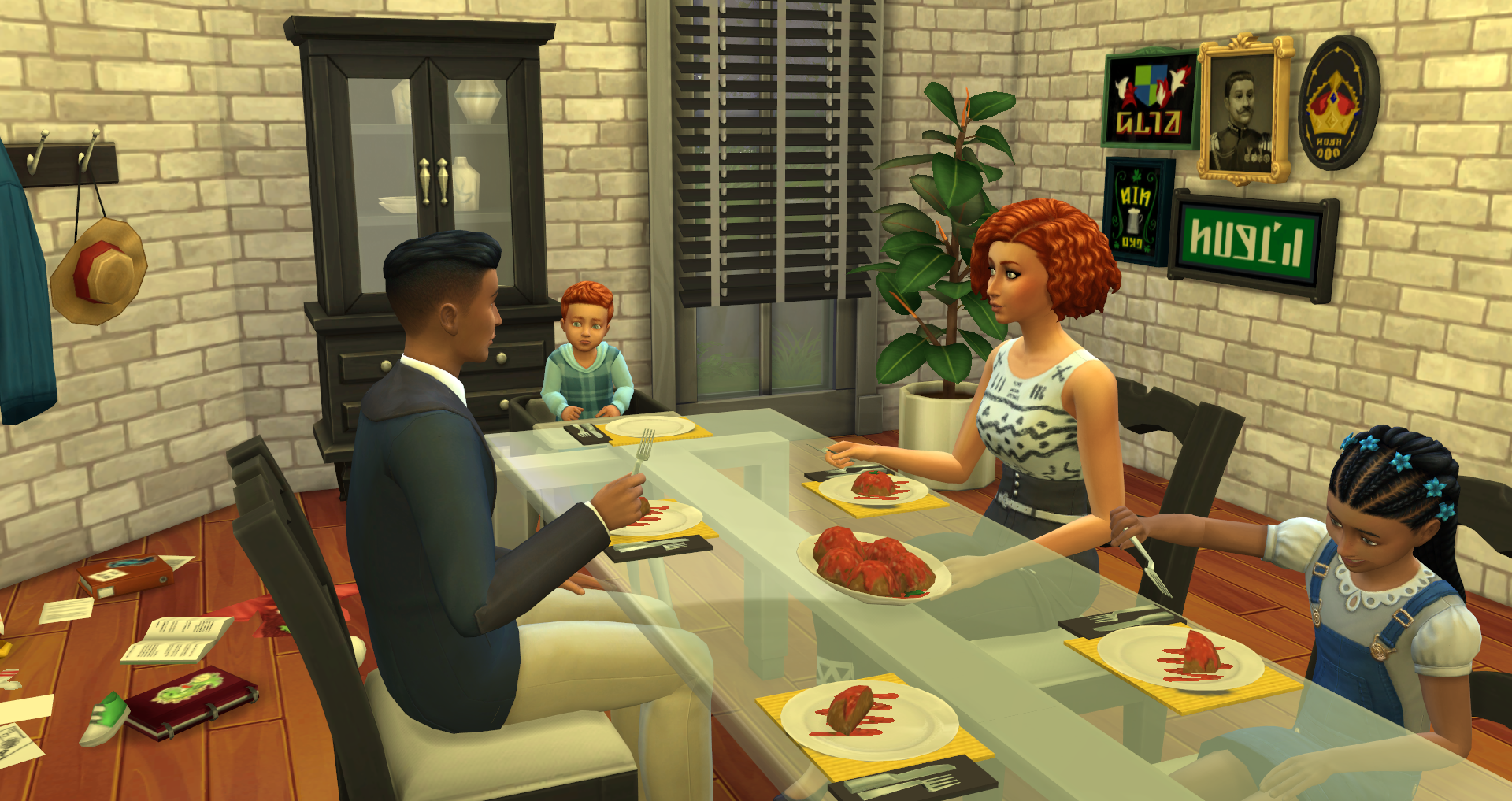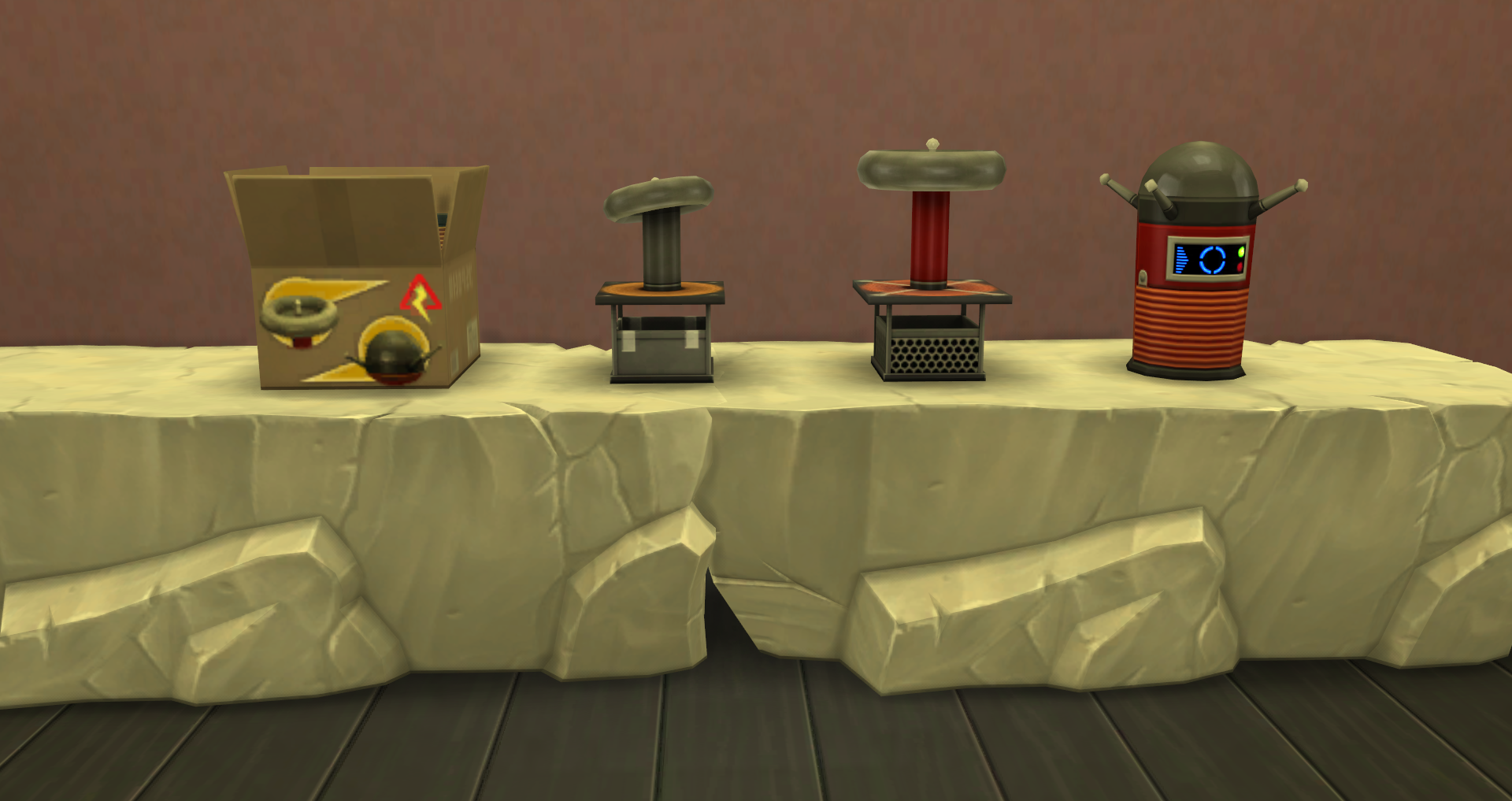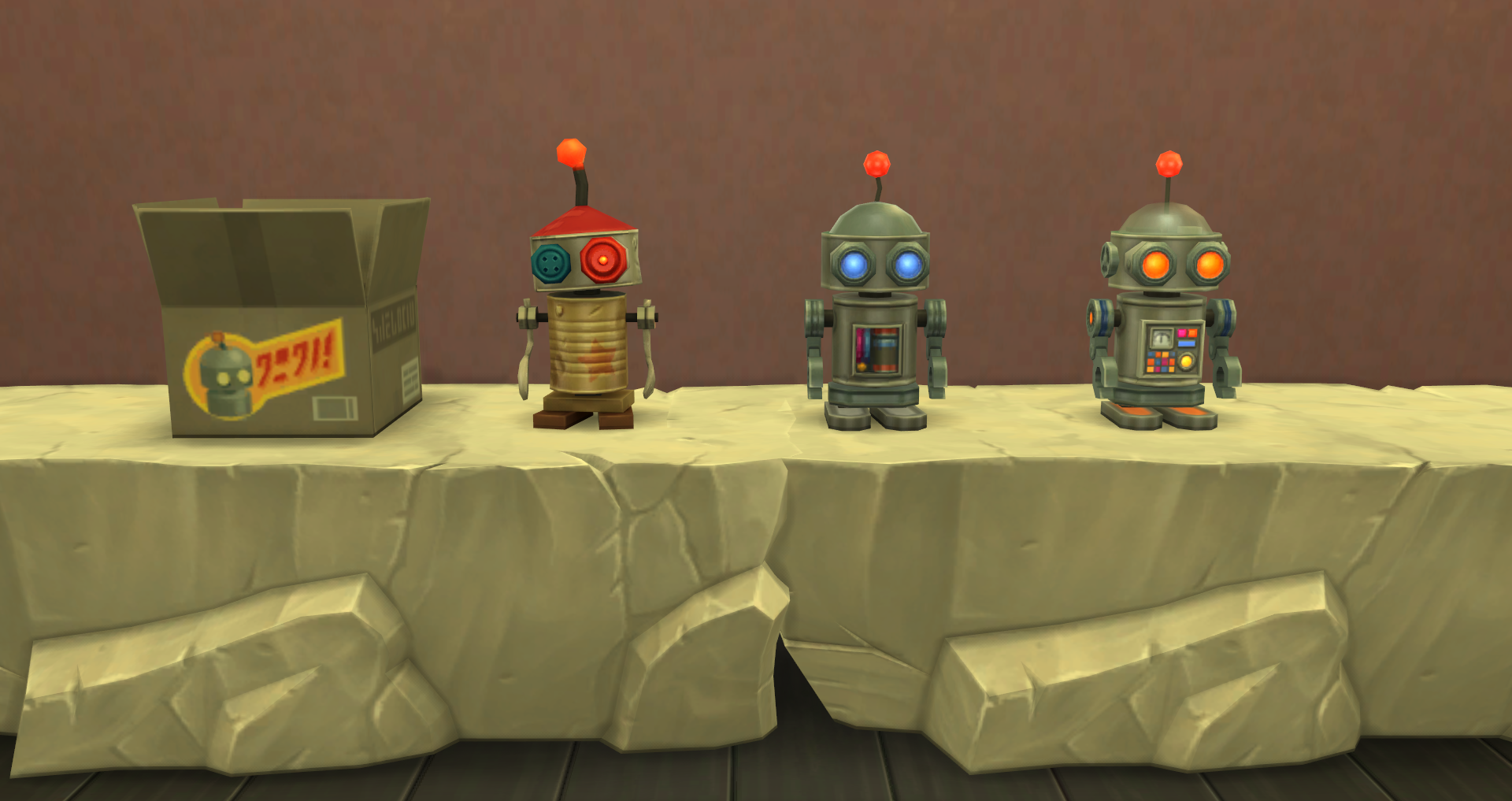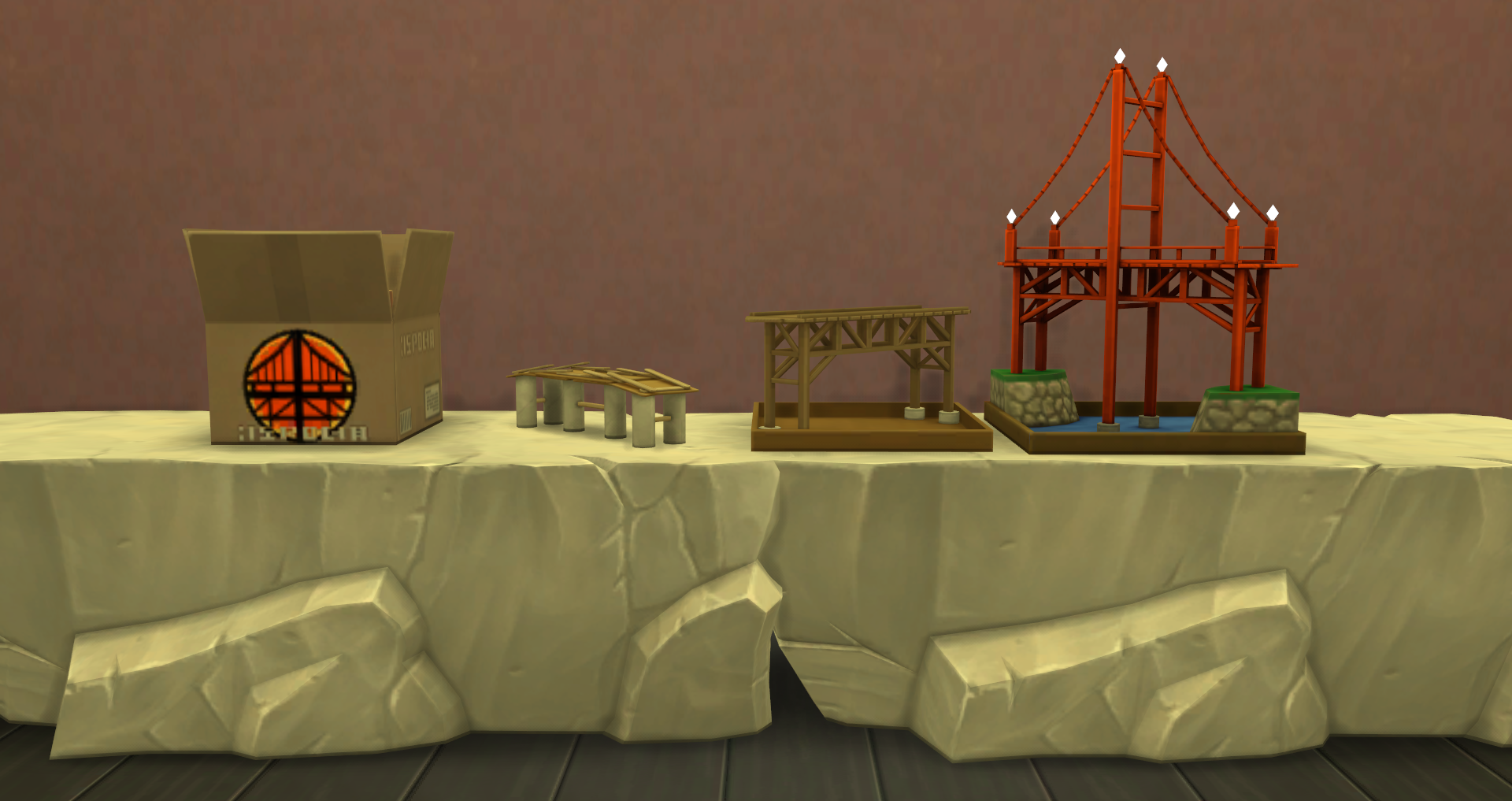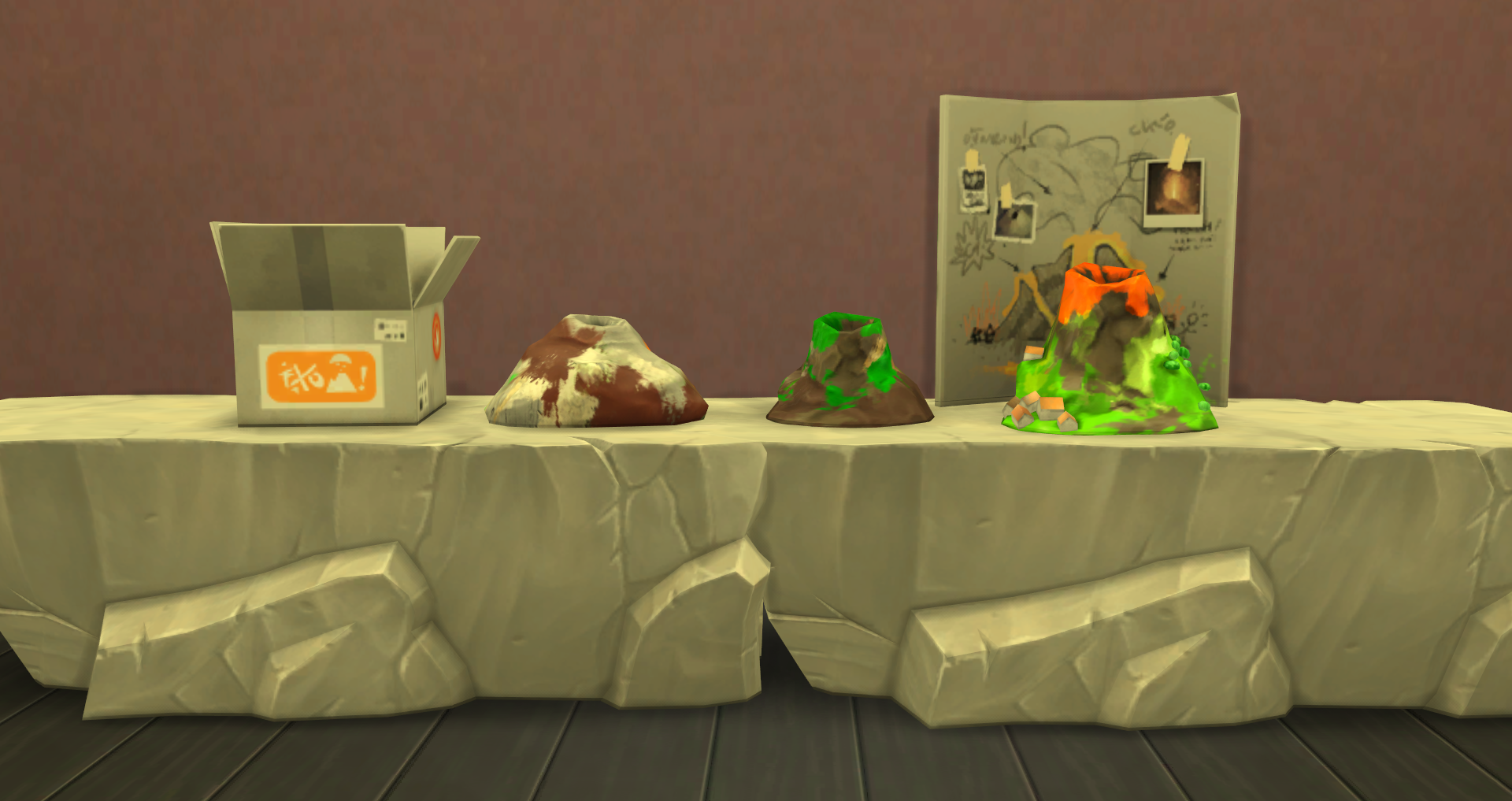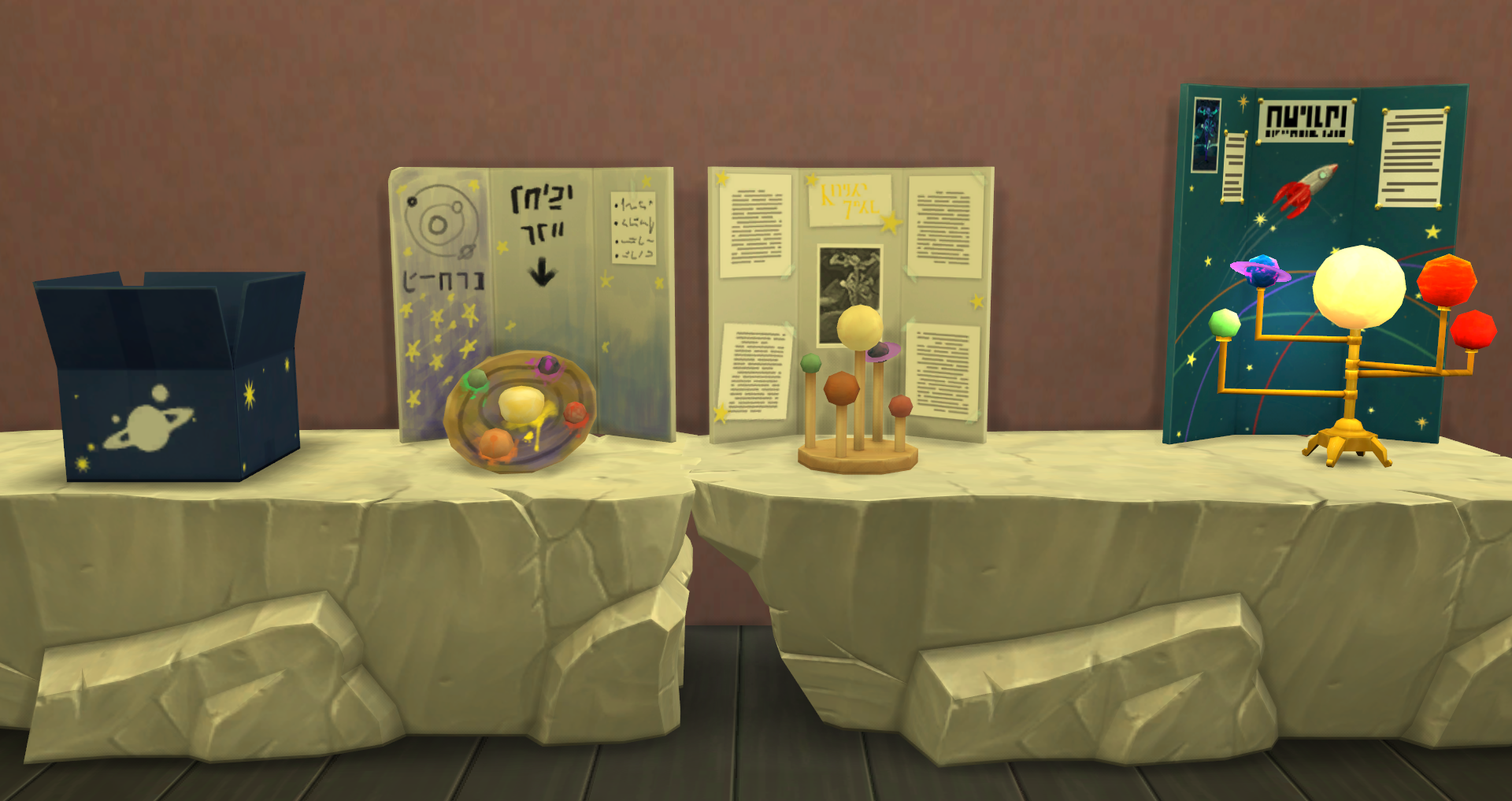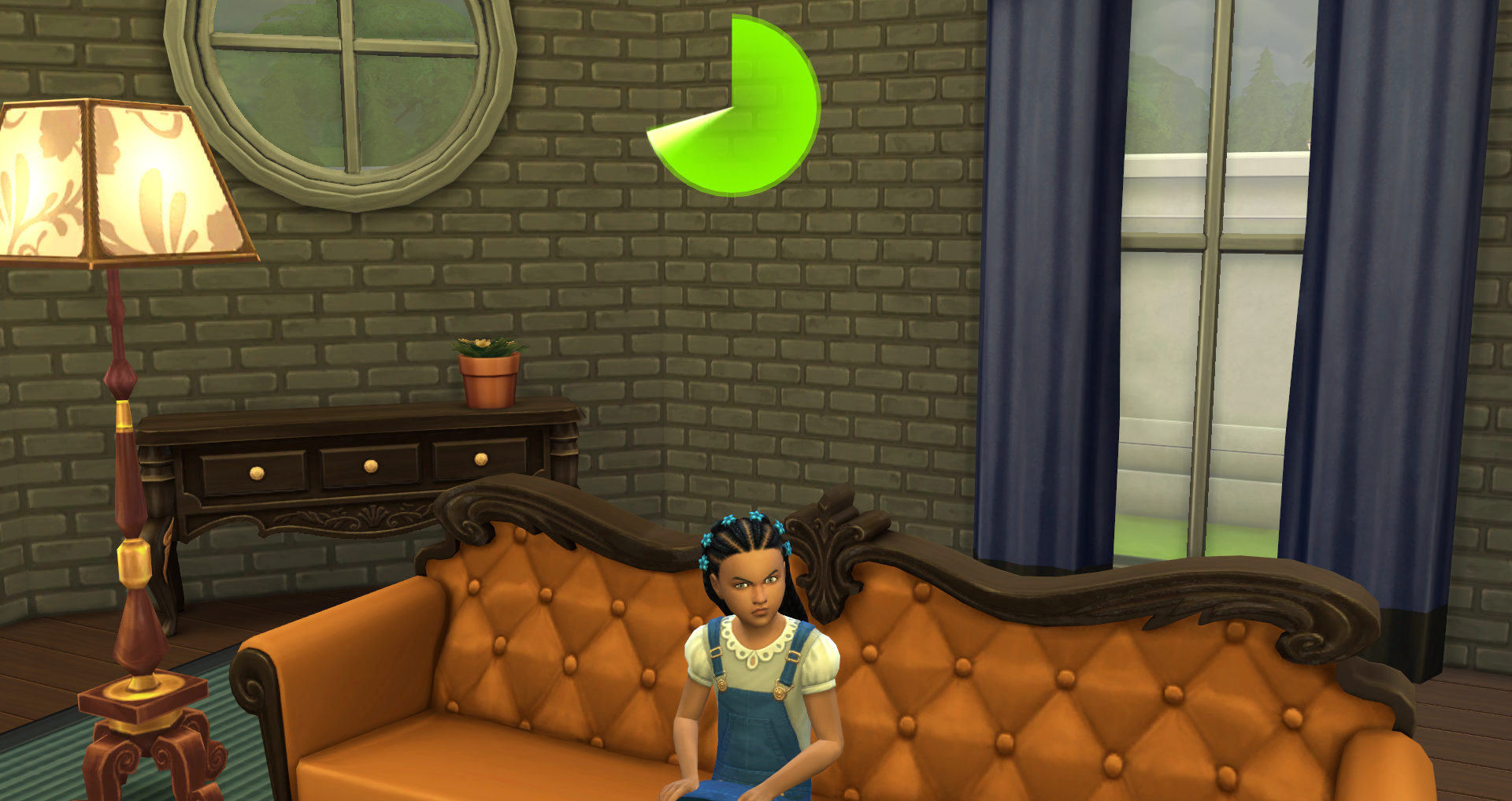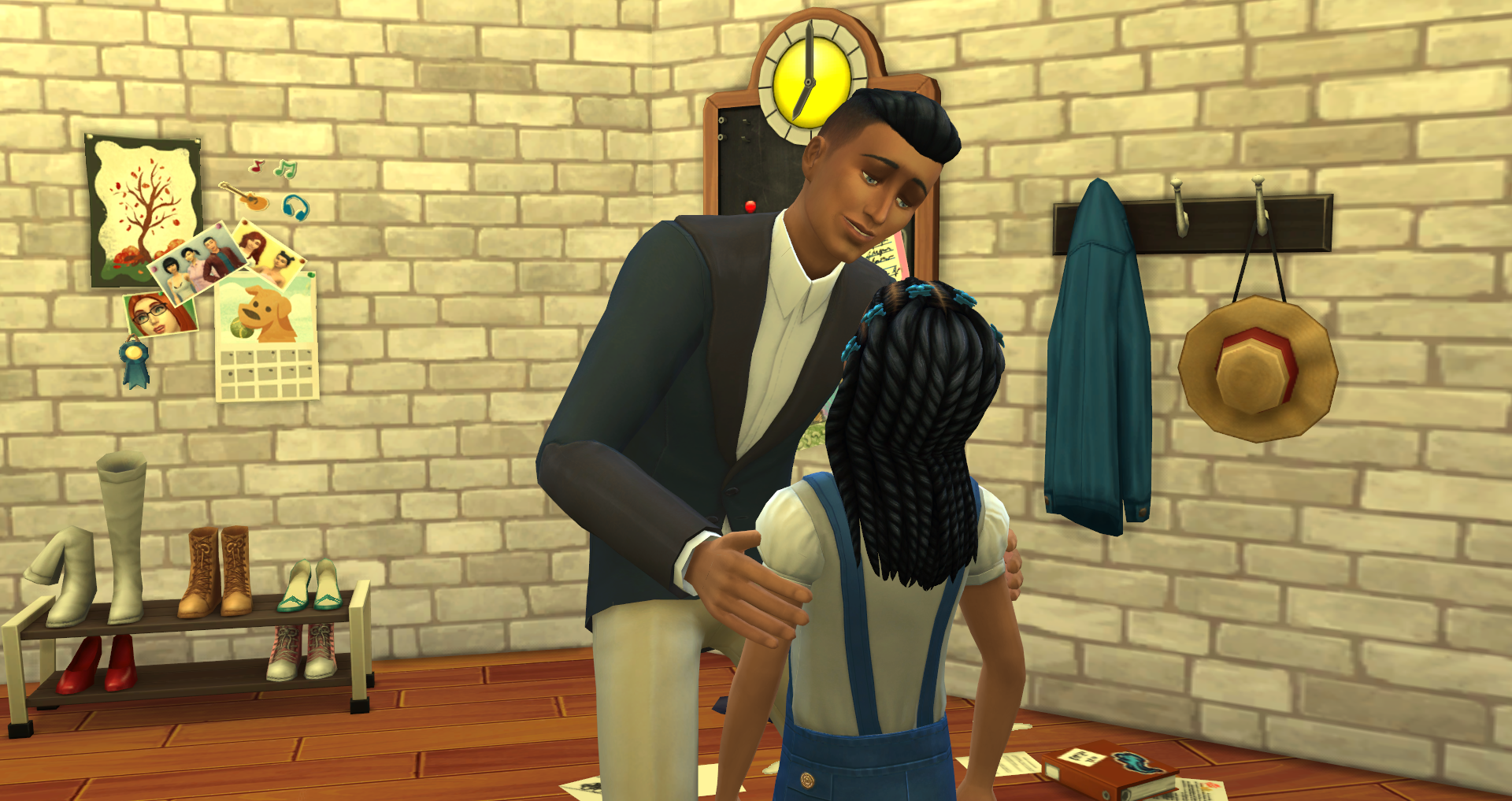SimsVIP provides in depth, detailed game guides to the community. If our guides have helped you with your game and you want to support our work, use the links below to contribute to the site! Thank you for your continued support and dedication.


The Sims 4 Parenthood Guide
It is illegal to duplicate or copy this guide to other sites without prior authorization. Any unauthorized use of this guide will result in legal action.
Copyright ©2011-2018 SimsVIP – All rights reserved
Contributors: Alexis of SimsVIP.
Click here for The Sims 4 Game Guide
Click here for The Sims 4 Build Guide
Click here for The Sims 4 Cheats Page
Click here for The Sims 4 Parenthood PDF Guide
Special Thanks to IamKerri for the PDF’s!
❗ To leave comments, suggestions and feedback, please see this post.
Table of Contents |
||
Basic Info
|
New Game Options
|
New Gameplay |
Icon
Game Cover
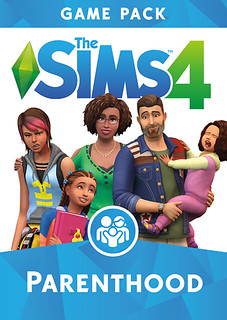
Game Summary
Develop your Sim’s parenting skills to help shape their children’s lives into adulthood with The Sims 4 Parenthood. Choose when to discipline or encourage child behaviors, teach life values, and leave a lasting impact on their future. Experience fun family activities and personalize your household with new home décor and family fashion.
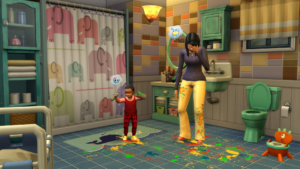
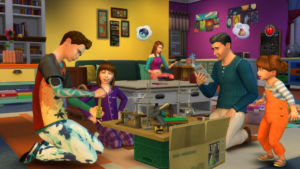
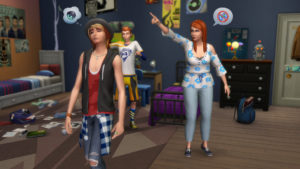
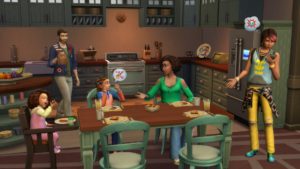
Click Here To Purchase The Sims 4 Parenthood!
Aspirations
![]() Super Parent – This Sim wants to be the best parent ever! Sims who select this Aspiration will complete a series of actions related to the Parenting Skill.
Super Parent – This Sim wants to be the best parent ever! Sims who select this Aspiration will complete a series of actions related to the Parenting Skill.
Traits
The Sims 4 Parenthood Game Pack adds a total of 18 new traits for Sims. These traits are broken down into three categories: Reward, Inherited, and Temporary. Each of the new traits becomes available to Sims in different ways, depending on their category.
Reward Traits
The following trait is a standard Reward type trait that is rewarded to Adult Sims who complete the “Super Parent” aspiration. This is a permanent trait.
Role Model – Gives bonus Character Value scoring when near Toddlers, Children, or Teens. (From Completing the Super Parent Aspiration)
Inherited Traits
Inherited Traits are a new type of trait category for Sims. Unlike Reward Traits that unlock when completing certain actions withing the game, Inherited Traits are acquired by Sims who fulfill Character Value Requirements. Character Values are a new positive & negative behavioral system introduced with The Sims 4 Parenthood.
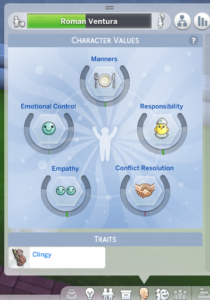
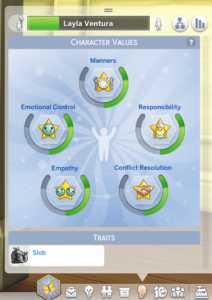
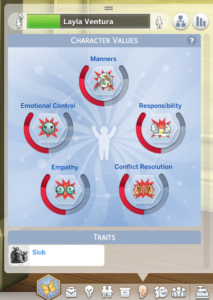
Character values are available to Toddlers, Children, and Teens. Once a Sim ages up to a Young Adult, their Character Values are locked in, and they will receive a unique Trait depending where their Character Values lie.
There are two unique traits attached to each Character Value; one positive, one negative. To learn more about the interactions and behaviors that promote positive and negative Character Values, please check out the Character Values section of the guide.
Emotional Control – Sims who have the Emotional Control Trait can relieve negative moods by jogging, listening to certain music, blogging on the computer, or playing an instrument. In general, their negative emotions will go away faster than other Sims. (From Having Positive Emotional Control)
Uncontrolled Emotions – Sims with Uncontrolled Emotions won’t be able to relieve their negative emotions as fast as other Sims. When they have strong negative emotions, they may have an emotional meltdown. (From Having Negative Emotional Control)
Good Manners – Sims with Good Manners won’t want to do any gross manners interactions, at least not in front of anyone. They also have a new Polite Introduction and can gain friendly relationships faster. Good Mannered Sims can also Offer Gratitude to the Host of a house they are visiting. (From Having Positive Manners)
Bad Manners – Sims with Bad Manners can try to be Friendly, but will always fail using certain socials. They will often use gross manners, swear a lot, and never want to do the dishes. (From Having Negative Manners)
Compassionate – Compassionate Sims can help other Sims relieve their negative emotions. They can also empathize with them by Sharing Emotional Burdens. However, these Sims get stressed when being Mean. (From Having Positive Empathy)
Insensitive – Insensitive Sims are able to Question other Sims’ negative emotions. They can also Instigate other Sims. Insensitive Sims will have a higher chance of failing socially when talking to Sims with bad emotions. (From Having Negative Empathy)
Responsible – Responsible Sims perform better at their jobs and can teach children and teens how to be responsible. (From Having Positive Responsibility)
Irresponsible – Irresponsible Sims are uncomfortable at work, but ignoring bills and slacking off brings them joy. They may also encounter new situations when at work. (From Having Negative Responsibility)
Mediator – Mediator Sims have a higher chance at successfully apologizing to other Sims and can Mediate the Forums. They can also mend differences with Sims they have not been friendly with for a long time. (From Having Positive Conflict Resolution)
Argumentative – Argumentative Sims don’t always start conversations on the right foot with Sims they don’t like. Successfully apologizing is harder and they do try to assert their correctness more often than not. (From Having Negative Conflict Resolution)
Temporary Traits
Temporary Traits are a new type of trait category for Sims. Unlike Reward and Inherited Traits, Temporary Traits come and go during the Child and Teens years through a new feature called “Childhood Phases”. Phases are random and exhibited by Children and Teens.
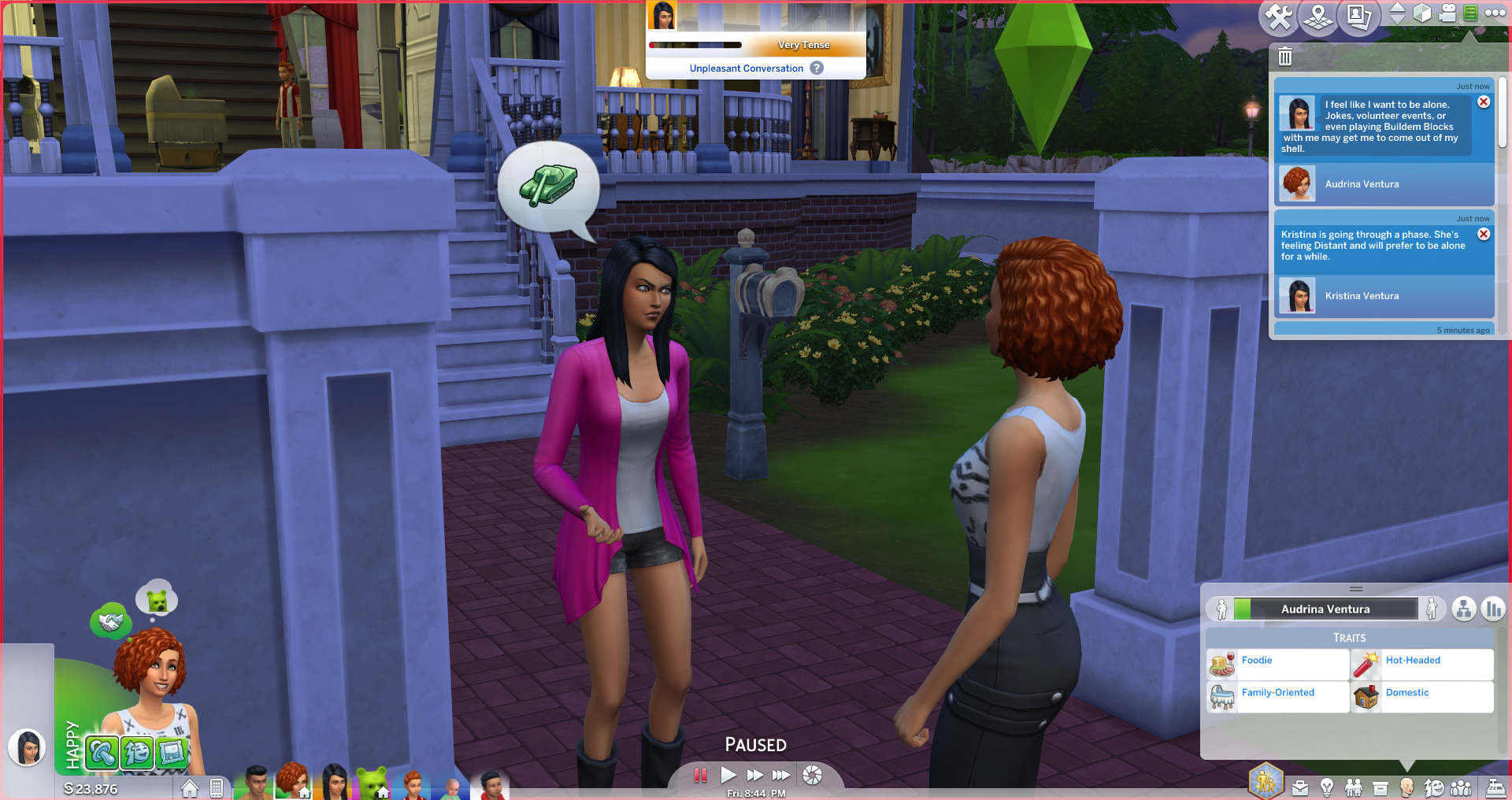
When going through a phase, young Sims will receive a temporary trait, along with unique interactions pertaining to the phase. Most of these phases and traits are available to Children and Teens, but some are restricted to one or the other. To learn more about Childhood Phases that trigger these traits, check out the Childhood Phases section of the guide.
Picky Eater (Temporary Trait) – It’s good to be a Picky Eater. Keep all those nasty culinary concoctions away from the Sim. They will prefer to eat their favorite Quick Meal. (From having a Childhood Phase – Children & Teens)
Rebellious (Temporary Trait) – Growing up means rebelling against the old fuddy duddy’s rules. This Sim will argue with their parents more often, swear, and procrastinate when doing homework. (From having a Childhood Phase – Children & Teens)
Mean Streak (Temporary Trait) – It is time to be Mean just because. This Sim is feeling nasty and will relish the chance to be Mean to other Sims. (From having a Childhood Phase – Children & Teens)
Loud (Temporary Trait) – This Sim is letting the world hear their voice! This Sim yells, makes noise on instruments, and will listen to music as loud as possible. Earplugs are advised for other family members. (From having a Childhood Phase – Children & Teens)
Clingy (Temporary Trait) – This Sim feels safest when interacting with their caregiver. There is no reason to interact with others when you have such an amazing person in your life. Forcing this Sim to interact with others will stress them out. (From having a Childhood Phase – Children Only)
I’m a Bear! (Temporary Trait) – Be the Bear! This child will accept nothing less than dressing as an amazing fruit-themed ruler of the forest. It will feel unbearable to wear any other outfits. (From having a Childhood Phase – Children Only)
Distant (Temporary Trait) – This teen has become distant. Being near and interacting with family has started to stress them out. The world just doesn’t understand them. (From having a Childhood Phase – Teens Only)
Create A Sim Fashions
Female Adult/Teen/Elder – 4 Hairstyles, 6 Tops, 5 Bottoms, 1 Outfit, 1 Accessory, 3 Facial Details
Female Children – 2 Hairstyles, 4 Tops, 3 Bottoms, 4 Outfits, 1 Pair of Shoes, 3 Facial Details
Female Toddlers – 2 Outfits, 1 Accessory
Male Adult/Teen/Elder – 1 Hairstyle, 5 Tops, 5 Bottoms, 1 Outfit, 1 Accessory, 3 Facial Details
Male Children – 1 Hairstyle, 3 Tops, 2 Bottoms, 2 Outfits, 3 Facial Details
Male Toddlers – 2 Outfits
Hairstyles and Hats








Clothing













































Accessories/Shoes




Facial Details: Acne
The Sims 4 Parenthood Game Pack introduces new skin details available in Create-a-Sim. When entering the “Skin Details” tab in CAS, you can now place three new “acne” details to a Sims face. This feature is only available for Teen and Adult Sims.
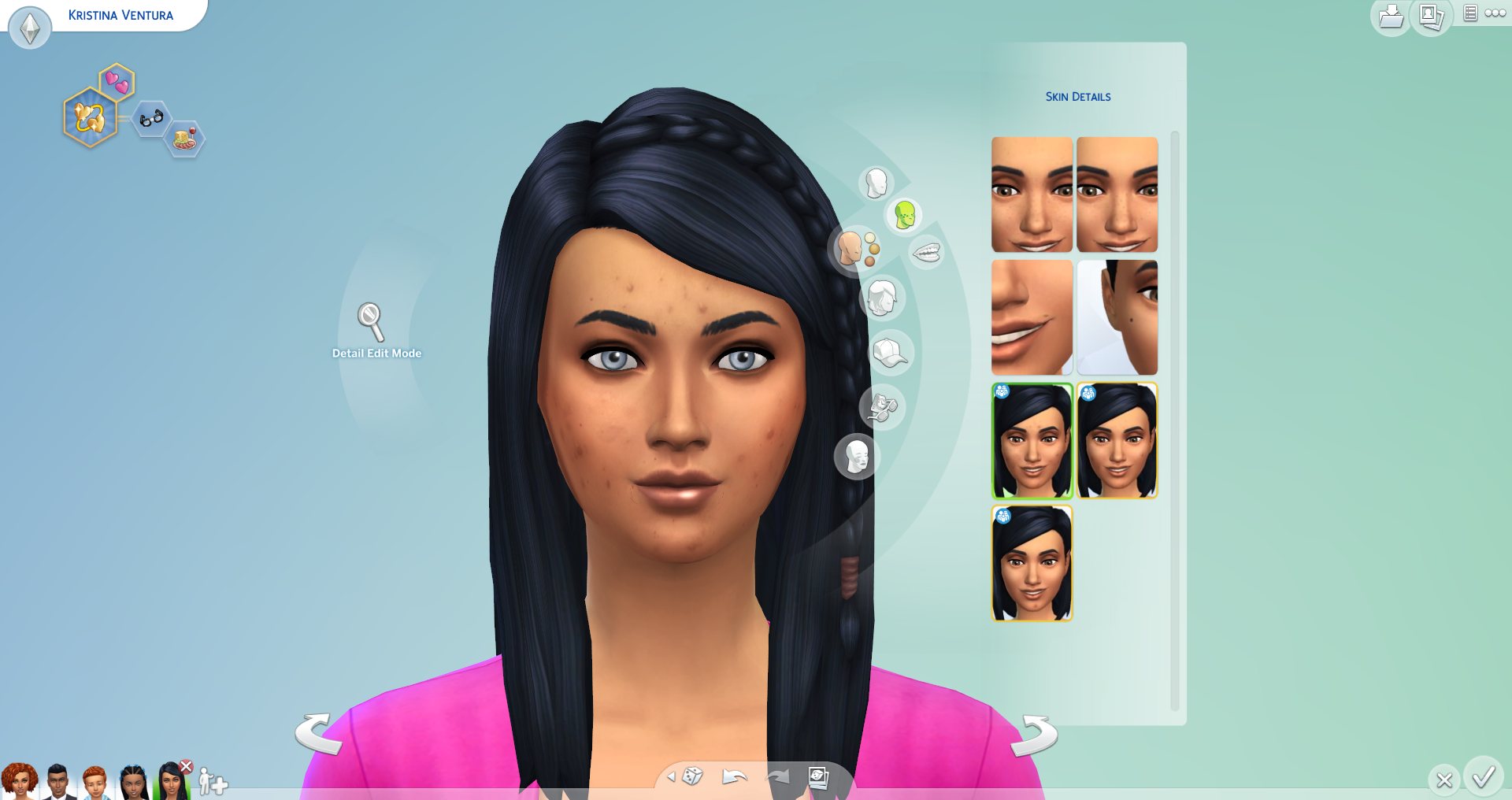
New Game Options & Interactions
This section includes new game options available with The Sims 4 Parenthood. Images have been sized down in most cases, so click the images for a larger view.
Club Requirements
If you own The Sims 4 Get Together Expansion Pack, you will receive one new Club Requirement with The Sims 4 Parenthood Game Pack. “+2 Parenting Skill” is the new option available when picking club requirements.
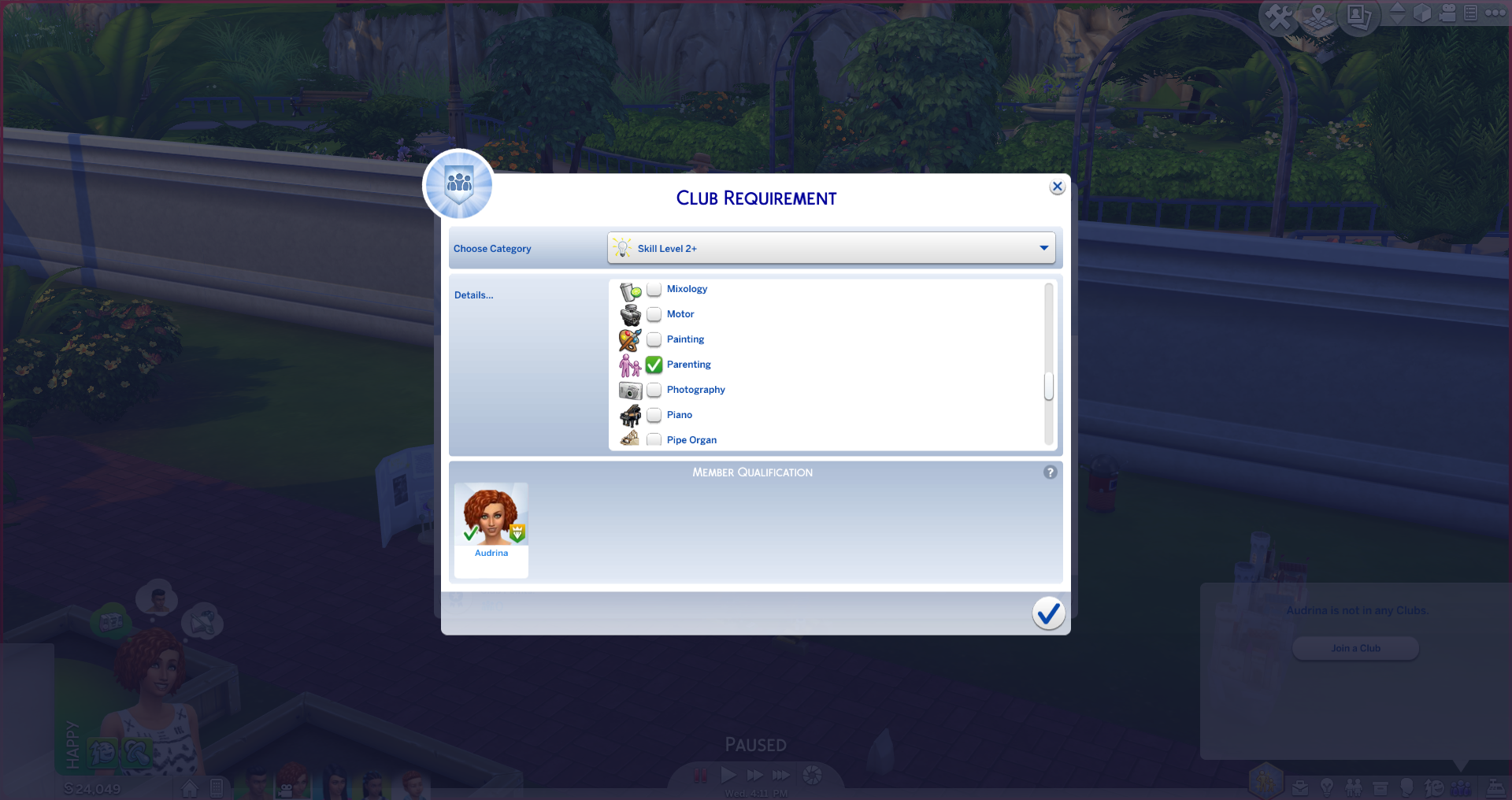
Pre-Built Lot
The Sims 4 Parenthood adds a new Pre-Built Lot that you can add into any world. The lot can be found and placed by entering your Library in The Sims 4 Gallery.
Commodious Residence (Residence, 30×20, §99,655) – This Residence has generous space for the family of your dreams!
With 2 stories, 4 Bedrooms, and 3 Bath, this home has enough room for entertaining, dealing with tantrums, and enjoying quiet times as family.
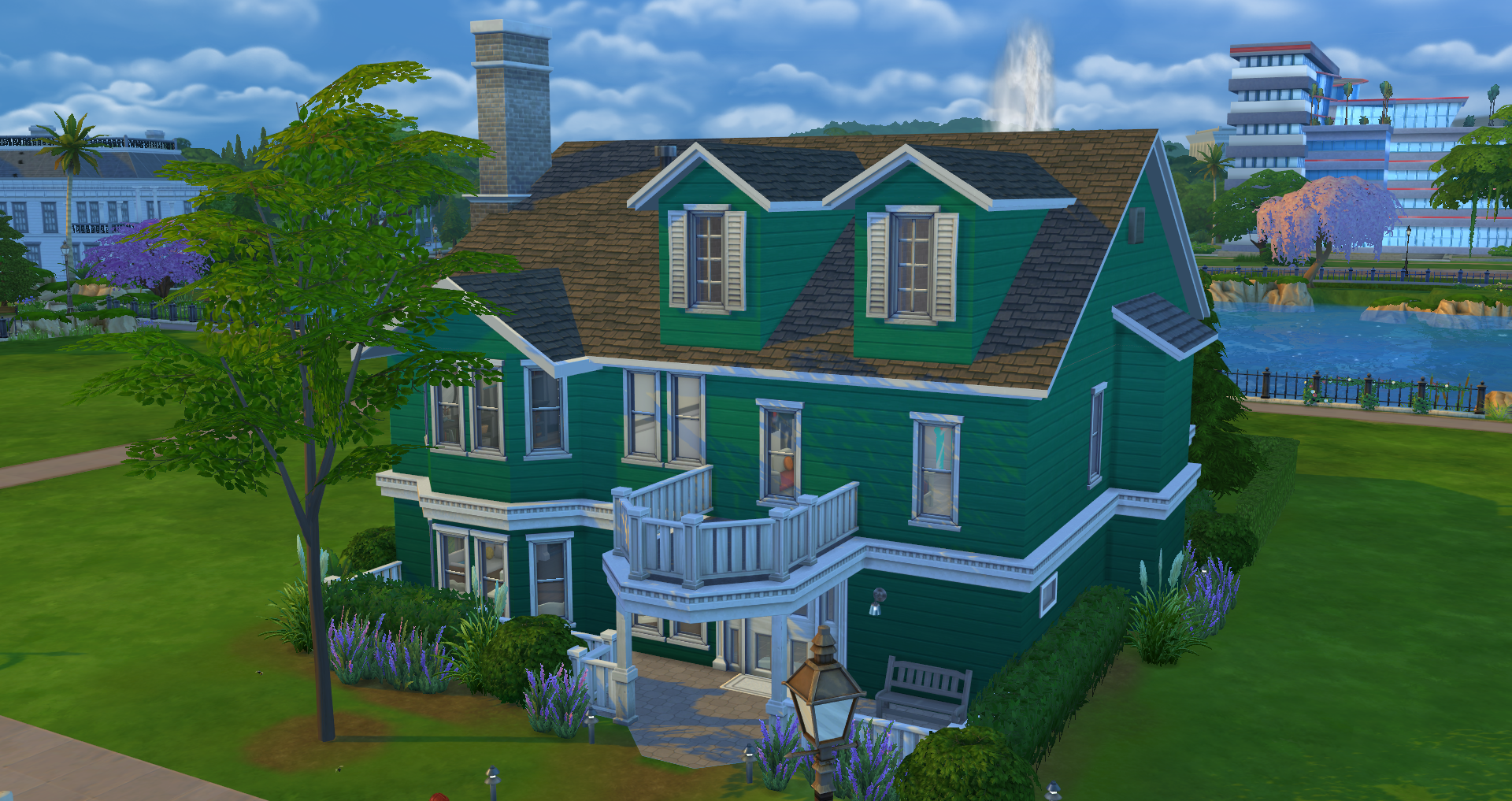
New Relationships
The Sims 4 Parenthood introduces new type of relationships to the game. Once a Sim ages up to a Young Adult, new relationships will be formed with their Parents, Grandparent, and siblings. These different relationships can be negative, neutral, or positive.
❗ These new parenting relationships can be viewed by hovering over a Sim’s photo in the relationship panel.
Relationships are determined during childhood and depend on how Sims were parented, or treated by siblings, or cared for by Grandparents. Relaxed parenting would yield a positive relationship in the future, while authoritative parenting will yield a negative one.
These relationships are historical and directly tied to childhood relationships, so they will not change positively or negatively in any way. The only difference is that certain interactions are available depending on the type of relationship. For example, positive relationships allow Sims to “Send Gifts” to family members with whom they have a positive relationship.
The following 28 relationship types are now available in the game:
Guided Child – A great relationship with a authoritative Parent.
Provided Happy Childhood – A great relationship with a relaxed Parent.
Respected Heir – The best relationship with an authoritative Parent.
Mommy’s/Daddy’s Boy/Girl – The best relationship with a relaxed Parent.
Obedient Child – A neutral relationship with an authoritative Parent.
Parented Passively – A neutral relationship with a relaxed Parent.
Repressed Child – A negative relationship with an authoritative Parent.
Unhappy Child – A negative relationship with a relaxed Parent.
The Best Lil’ Boo – A great relationship with a Grandchild.
Grandkiddy – A neutral relationship with a Grandchild.
Grumpchild – A negative relationship with a Grandchild.
World’s Best Grandpa/Grandma – A great relationship with a Grandparent.
Plain Ol’ Gramps/Gran – A neutral relationship with a Grandparent.
The Grumps – A negative relationship with a Grandparent.
Grateful Guide – A great relationship and a lot of discipline.
Happy Childhood – A great relationship and little discipline.
Oh Captain, My Captain – The best relationship and a lot of discipline.
Daddy/Mommy Dearest – The best relationship and little discipline.
Commanding Presence – A neutral relationship and a lot of discipline.
Passive Parent – A neutral relationship and little discipline.
Punishing Parent – A negative relationship and a lot of discipline.
Unhelpful Parent – A negative relationship and little discipline.
Thick as Thieves – A great relationship with a rival sibling.
Super Siblings – A great relationship with an ally sibling.
Family Frenemy – A neutral relationship with a rival sibling.
Childhood Buds – A neutral relationship with an ally sibling.
Childhood Tormentor – A negative relationship with a rival sibling.
Childhood Enemies – A negative relationship with an ally sibling
Lunch Sacks
The Sims 4 Parenthood introduces an all new way to make meals called “Lunch Sacks”. Lunch Sacks allow for meals to be freshly packed in a paper bag for up to 10 hours. Each lunch sack holds one serving of any meal your Sims create, including baked goods.
❗ Children and Teens who leave for school hungry in the morning, will eat the Lunch Sacks while at school to fulfill their hunger need.
❗ Sims can make Lunch Sacks from toddler food as well. Once you click a highchair, cancel the eating action for the toddler and have a Sim use the “Pack Lunch Sack” option. Peas and Chicken Nuggets for everyone!
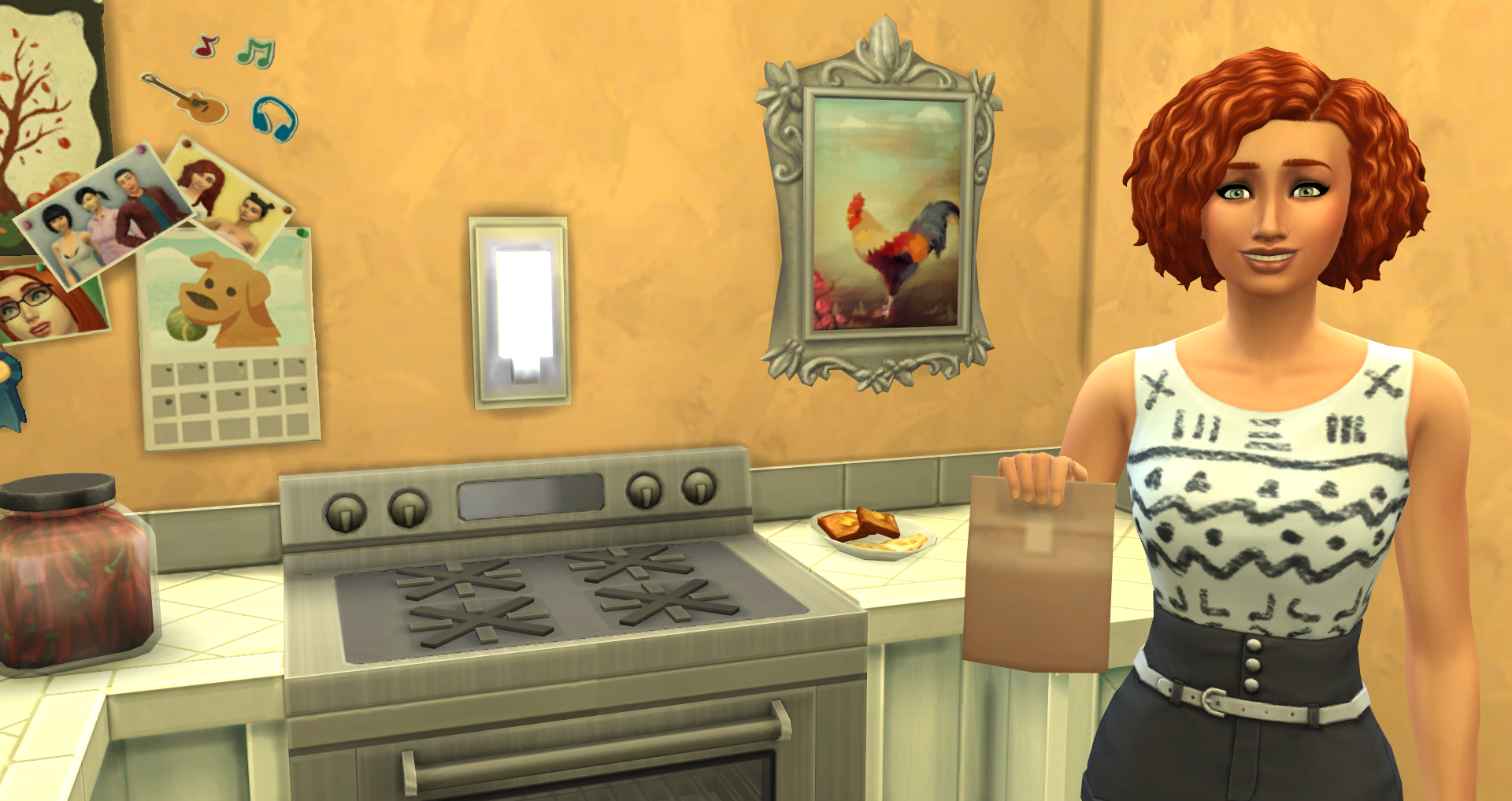
Teens and Adults can prepare lunch sacks by using the all new “Make Sack Lunch” interaction on the fridge, or by using the “Pack Into Lunch Sack” interaction on prepared meals. Once a lunch sack is made, there are three options available:
• Unpack Lunch Sack – This allows a Sim to unpack the serving of food and eat it.
• Put in Inventory – This allows a Sim to place the lunch sack into their inventory.
• Put Away – This directs a Sim to place the lunch sack in the fridge for later use.
In addition to packing any type of meal into the lunch sacks, the game also introduces three brand new lunch sack specific recipes: Peanut Butter & Jelly Sandwiches, Tuna Salad Sandwiches, and Veggie and Hummus Sandwiches.
New Recipes
The Sims 4 Parenthood adds 3 brand new Lunch Sack specific food recipes. These recipes are made through the new “Make Sack Lunch” interaction on the fridge.
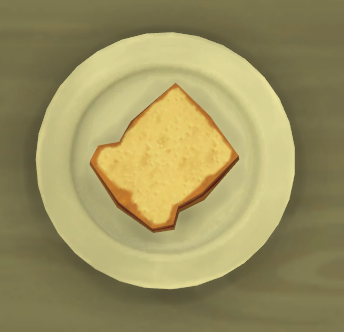 | Peanut Butter & Jelly Sandwich (§3) |
 | Tuna Salad Sandwich (§3) |
 | Veggie and Hummus Sandwich (§4) |
Place Settings
The Sims 4 Parenthood introduces the ability for Sims to set the table using a variety of pre-made Place Settings. Sims as young as Children can initiate, or be directed to, set the table at any time. There are three different styles available:
❗ Place Settings can be cleared after they are placed, used when eating meals, and changed to a different style once they are cleared.
Casual Setting
- Blue
- Red
- Tan
- Yellow
Fancy Setting
- Border
- Desert
- Triangles
- Dots
Party Setting
- Blue
- Burgundy
- Gray
- Yellow
Family Bulletin Board
The Sims 4 Parenthood introduces a new interactive object called the “Family Bulletin Board”. This object can be placed anywhere in the home, and allows Sims to interact with it in a variety of ways. With the exception of “Setting Curfew”, all interactions listed below are available for Sims aged Child through Elder.
• Write Note For – This allows a Sim write random notes for other Sims. If a Sim is experiencing an emotional change, they can also leave letters related to their mood.
• Read Note – This allows a Sim to read notes that are left on the bulletin board. Sims can read all letters regardless if they were written for them or not.
• Create Drawing – This directs a Sims aged Teen and older to paste one of five pre-made bulletin board drawings.
• Add Inventory Drawing – This allows children to post drawings from their inventory that were created using activity tables.
• Look at Drawing – This allows Sims to view any drawings posted to the bulletin board.
• Clear Bulletin Board – This directs a Sim to clear any notes and drawings that were placed on the bulletin board.
• Set Curfew (Adults) – This allows Adult Sims to set a curfew time for children in the home. Curfew can be set at 7pm, 9pm, or 11pm. The clock on the board will change colors as curfew time approaches. Yellow means children and teens are in the clear, Orange means it’s almost curfew time, and Red indicates that it is past curfew. Children and Teens who leave the house past this time will be breaking curfew, and Adult Sims can use the Parenting interaction to discipline them how they see fit.
• Remove Curfew (Adults) – This allows Adult Sims to remove and clear curfew times.
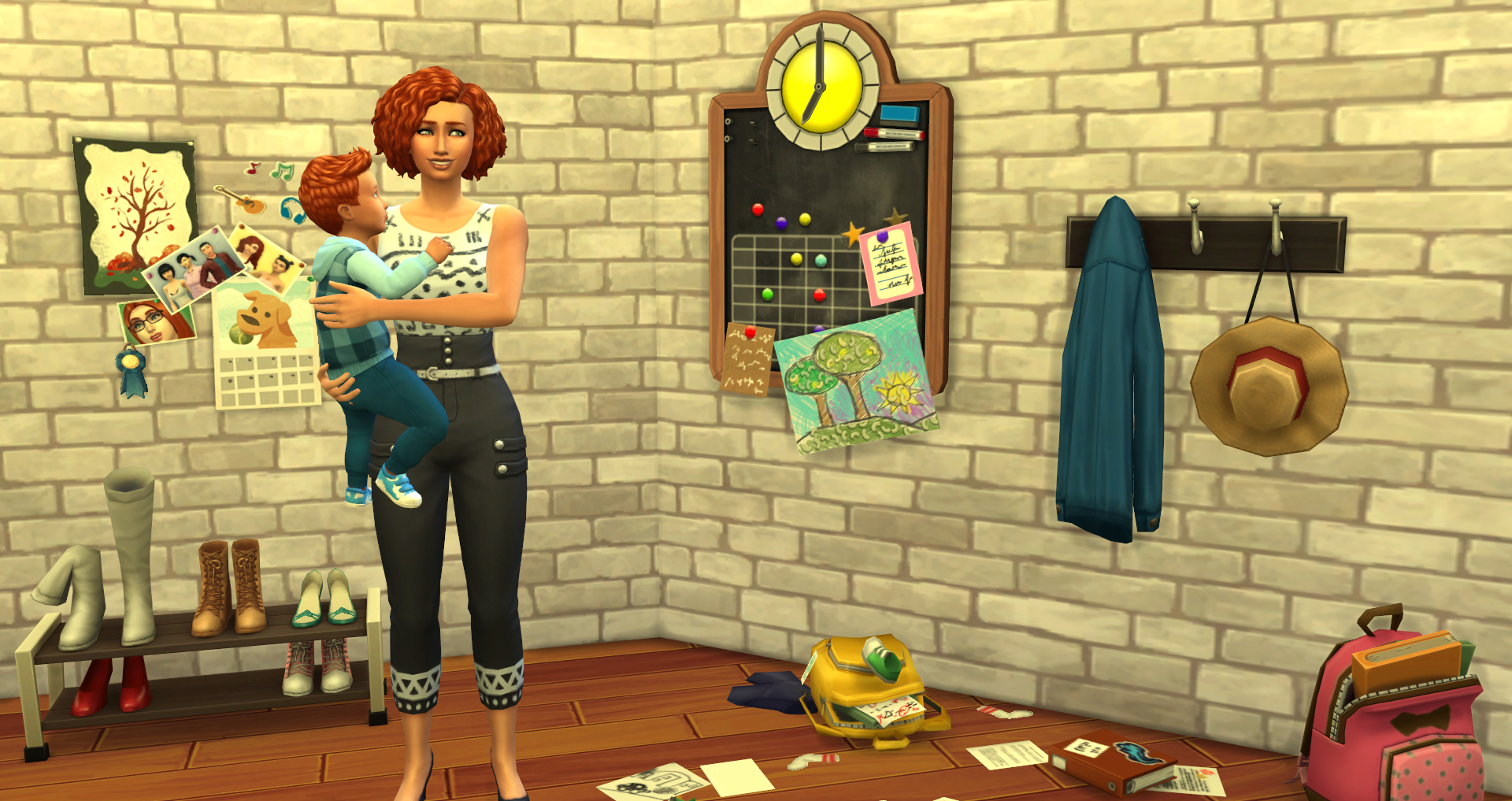
Private Journal
The Private Journal is a brand new interactive object that can be used by Sims aged Child and older. The journal allows emotional Sims to relieve their feelings on paper. There are a variety of new moodlets associated with this object through the following interactions:
• Write in Journal – This interaction is available to Sims aged Child to Elder.
• Express Melancholy Thoughts – This interaction is available to Sims who are experiencing the Sad Emotion.
• Scribble Furiously – This interaction is available to Sims who are experiencing the Angry Emotion.
• Rant about Stress – This interaction is available to Sims who are experiencing the Tense Emotion.
• Confess Embarrassing Moments – This interaction is available to Sims who are experiencing the Embarrassed Emotion.
• Encourage Writing In Journal – This interaction is available to Adult Sims when interacting with Children and Teens who have recently exhibited unfavorable behavior.
• Relive Memories – This interaction allows Sims to read through their journal and relive the entries they’ve written down. This will give Sims random emotional moodlets related to reading the Journal.
• Snoop in Journal – This allows Sims to snoop through a journal that does not belong to them.
• Catch a Sim Snooping in Journal – Sims who decide to snoop through the journals of others should be careful not to get caught. In other words, don’t do it in front of them.

Volunteering
Sims aged Teen and older can now participate in rabbit hole events called “Volunteer Activities”. These activities can be accessed by using a Sim’s cell phone.

To initiate a volunteer event, select the cell phone > Travel > Volunteer. From there, a Sim will be able to perform the volunteer activities alone, or along with other Sims. During the time Sims volunteer, they will be dealt “Chance Card” opportunity pop-ups that allow them to increase (or decrease) their Character Value scores.
Chance Cards
The Sims 4 Parenthood introduces new pop-up opportunities called “Chance Cards”. These new opportunities are similar to already existing opportunities, the only difference is that they affect the behavior of Sims. Chance Cards appear for Sims of all ages.
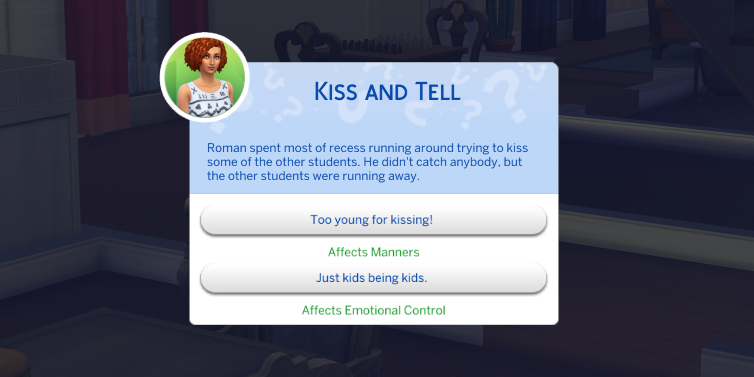
The chance cards will give Sims two options, both of which positively and negatively affect character values. Sims can choose to interact with chance cards as a way to positively or negatively shape their behavior, careers, and character values.
Make a Mess
The Sims 4 Parenthood introduces a new interaction specifically for Toddlers and Children. “Make a Mess” is an interaction that can be selected when clicking available ground space. Upon choosing this option, Toddlers and Children will proceed to make mess on the floor.
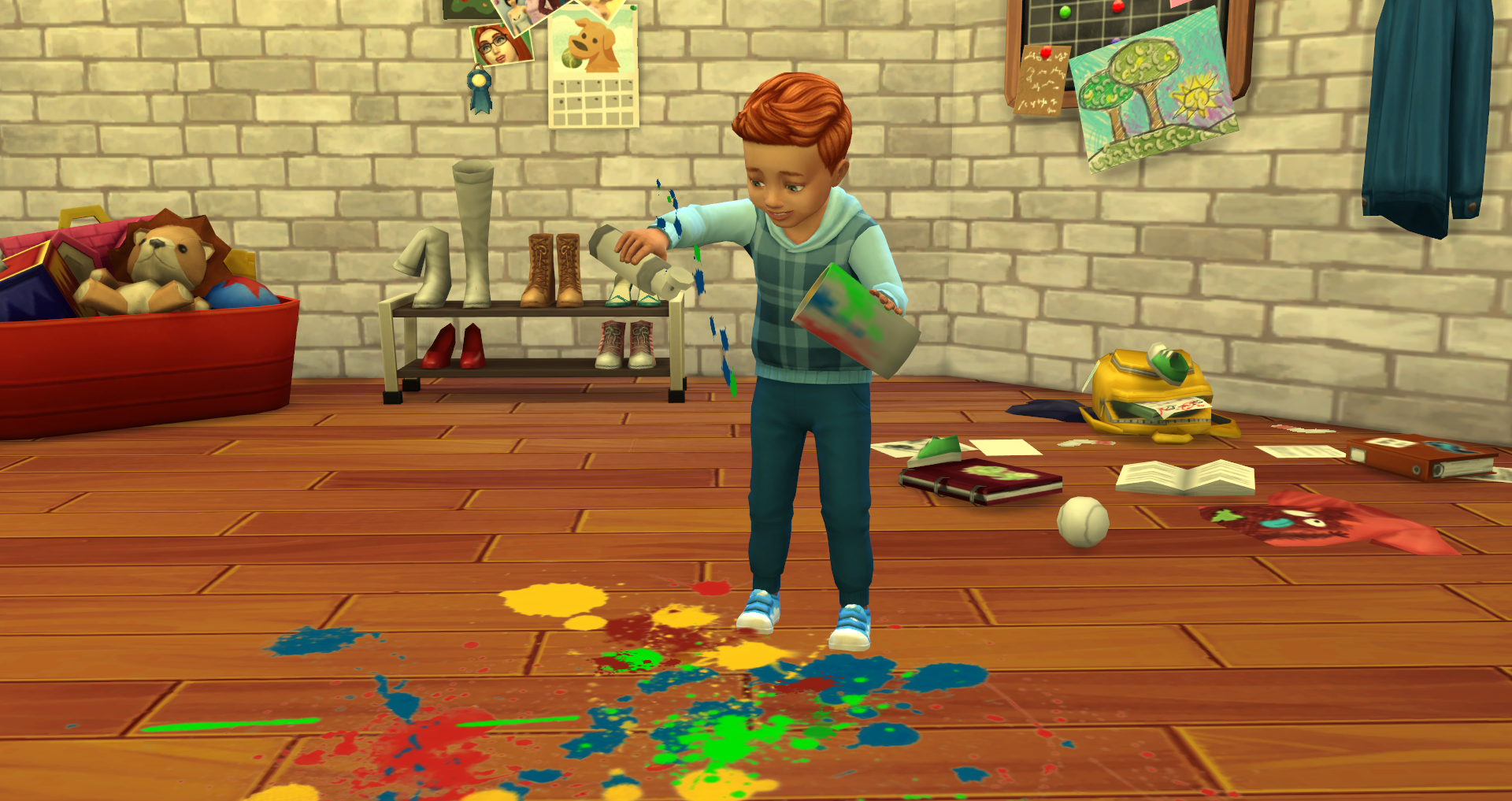
When Sims make a mess on the floor, parents can use their Parenting interactions to discipline them for their actions, or direct them to clean the mess. This interaction also increases the Imagination Skill level for Toddlers, and the Creativity Skill level for Children.
Interactive Objects
The Sims 4 Parenthood Game Pack includes three new interactive objects. These objects help increase certain skill for Sims, and provide a fun way to pass time with family.
The Doctor Playset increases a Child’s Mental Skill and Empathy Character Value, the Activity Table helps increase a Child’s Creativity Skill, and the Build Blocks Table gives families a way to spend some quality time. Activity Table drawings can be pinned to the bulletin board.
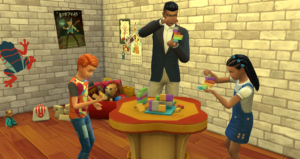
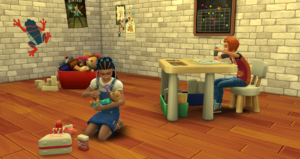
School Projects
School Projects are a new family activity introduced in the game. Projects can be purchased through buy mode, or randomly brought home by Children when they return home from school. Completing a school project will yield extra credit, and also increases different skill levels for Sims depending on the type of school project.
❗ Toddlers can use the “Destroy School Project” interaction on school projects.
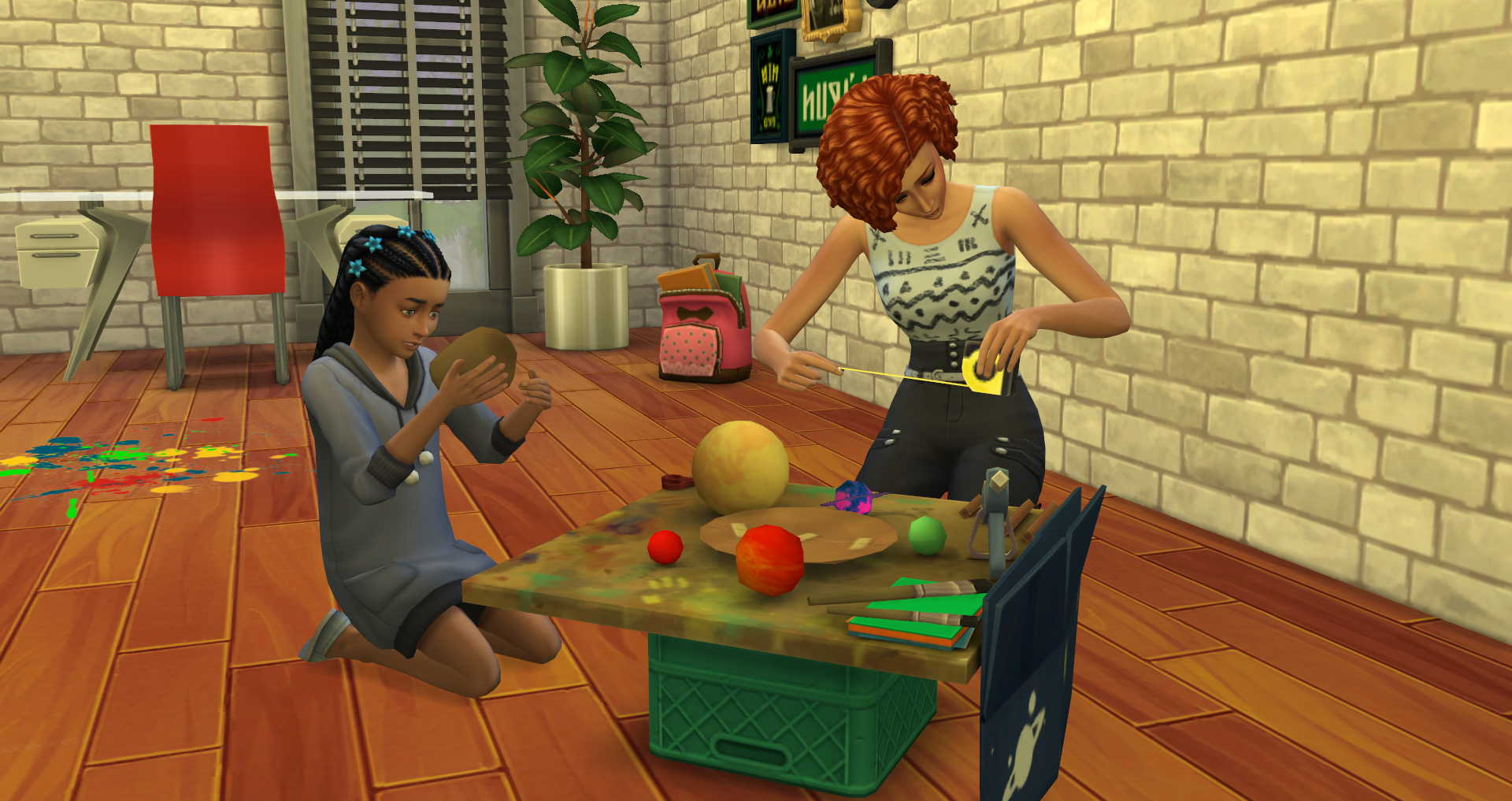
There are 7 different types of School Projects available in the game, with some offering additional interactions when completed. There are two ways Children and Teens can work on these projects: Carefully or Sloppily. This, along with other factors, determines the quality of projects. There are 3 quality levels for each project: Poor, Good, Excellent.
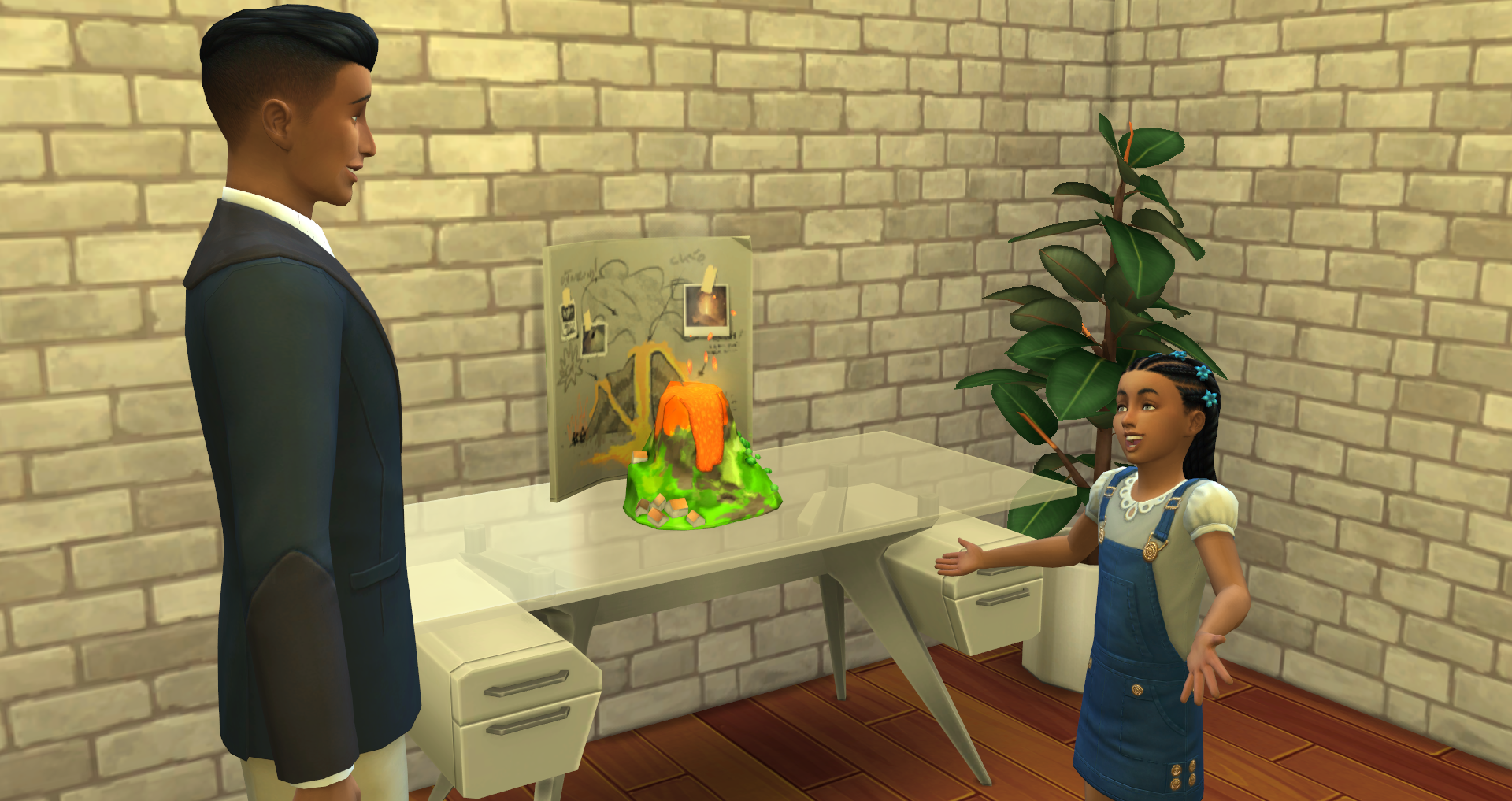
After completing the school projects, Sims will have additional interactions available depending on the type of project. Some of the projects “Activate” and display some neat effects, others are more “Interactive” and act as fun activities. Adult Sims can assist with the projects as well. The following projects are available to Children and Teens:
• Electricity Experiments (Recommended for Teens) – This project increases Mental Skill (Children) and Handiness Skill (Teens/Adults). When completed, this project can be activated.
• Air Pressure Rocketry (Recommended for Teens) – This project increases Mental Skill (Children) and Rocket Science Skill (Teens/Adults). When completed, this project is interactive.
• Robotics (Recommended for Teens) – This project increases Mental Skill (Children) and Programming Skill (Teens/Adults). When completed, this project can be activated.
• Construct-a-Bridge (Recommended for Teens) – This project increases Mental Skill (Children) and Logic Skill (Teens/Adults).
• Chemical Reaction Volcano (Recommended for Children) – This project increases Mental Skill (Children) and Logic Skill (Teens/Adults). When completed, this project is interactive.
• Solar System (Recommended for Children) – This project increases Mental Skill (Children) and Rocket Science Skill (Teens/Adults).
• Medieval Castle Diorama (Recommended for Children) – This project increases Creativity Skill (Children) and Painting Skill (Teens/Adults).
Time Outs and Grounding
New with The Sims 4 Parenthood is the ability for Parents to discipline and punish their children using the new “Time Out” and “Grounding” systems. These interactions are dependent on the Parenting Skill, and require specific skill levels to be used. To learn more about the Parenting Skill, check out our Parenting Skill section of the guide.
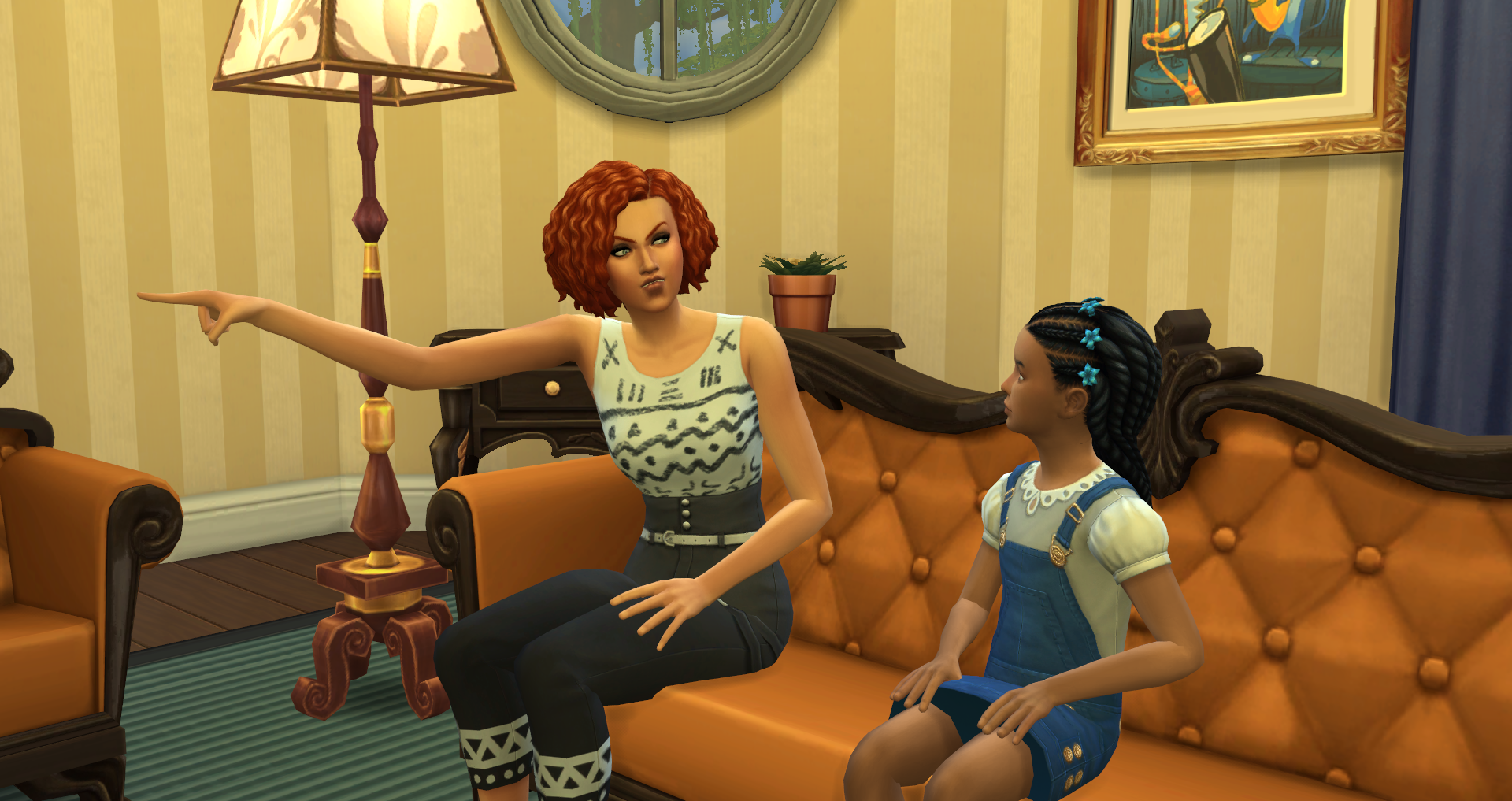
• Time Outs – When Adult Sims reach level 4 in the Parenting Skill, they have the ability to give Time Outs. Giving Children and Teens Time Outs is a way for them to spend some time thinking about what they’ve done, and hope they don’t do it again. Those who receive a time out will sit in place and await for the countdown above their head to complete. Time outs last for 30 minutes and can also be disobeyed.
• Grounding – When Adult Sims reach level 5 in the Parenting Skill, they have the ability to Ground Children and Teens. When deciding to use Grounding as a way to discipline, Adult Sims have the option to restrict certain activities. Grounding is done 1 day at a time, and can also be disobeyed.
In order for parents to punish their children, the children will have to act in a way that the parents find to be problematic. Once this occurs, parents can access these options through the Parenting Skill panel. (Parenting > Discipline > Punish > )
Childhood Phases
As mentioned in the Traits portion of the guide, The Sims 4 Parenthood introduces new Temporary Traits that are acquired when Children and Teens have a “Childhood Phase”. These emotional unbalances occur randomly, and give Sims special interactions and traits.

Most of these phases and traits are available to Children and Teens, but some are restricted to one or the other. When Sims enter a phase, you will be notified via notifications with the type of phase they are entering. During this time Parents can ask their children about the phase, which will notify you of action that can be taken to help rid the phase quicker.
Additionally, Children and Teens will exhibit behavior that is abnormal. For example, Picky Eaters will loathe the food their parents make for them, and Distant Sims will want to stay as far away from family as possible. The following Phases happen in game:
Picky Eater (Temporary Trait) – It’s good to be a Picky Eater. Keep all those nasty culinary concoctions away from the Sim. They will prefer to eat their favorite Quick Meal. (Children & Teens)
Rebellious (Temporary Trait) – Growing up means rebelling against the old fuddy duddy’s rules. This Sim will argue with their parents more often, swear, and procrastinate when doing homework. (Children & Teens)
Mean Streak (Temporary Trait) – It is time to be Mean just because. This Sim is feeling nasty and will relish the chance to be Mean to other Sims. (Children & Teens)
Loud (Temporary Trait) – This Sim is letting the world hear their voice! This Sim yells, makes noise on instruments, and will listen to music as loud as possible. Earplugs are advised for other family members. (Children & Teens)
Clingy (Temporary Trait) – This Sim feels safest when interacting with their caregiver. There is no reason to interact with others when you have such an amazing person in your life. Forcing this Sim to interact with others will stress them out. (Children Only)
I’m a Bear! (Temporary Trait) – Be the Bear! This child will accept nothing less than dressing as an amazing fruit-themed ruler of the forest. It will feel unbearable to wear any other outfits. (Children Only)
Distant (Temporary Trait) – This teen has become distant. Being near and interacting with family has started to stress them out. The world just doesn’t understand them. (Teens Only)
Mood Swings
Mood Swings are yet another behavioral breakdown specifically for Teens. At random times during gameplay, Teens may end up with an inexplicable Mood Swing. When this happens, they receive an +50 Angry/Embarrassed/Sad/Tense moodlet that lasts for 8 hours.
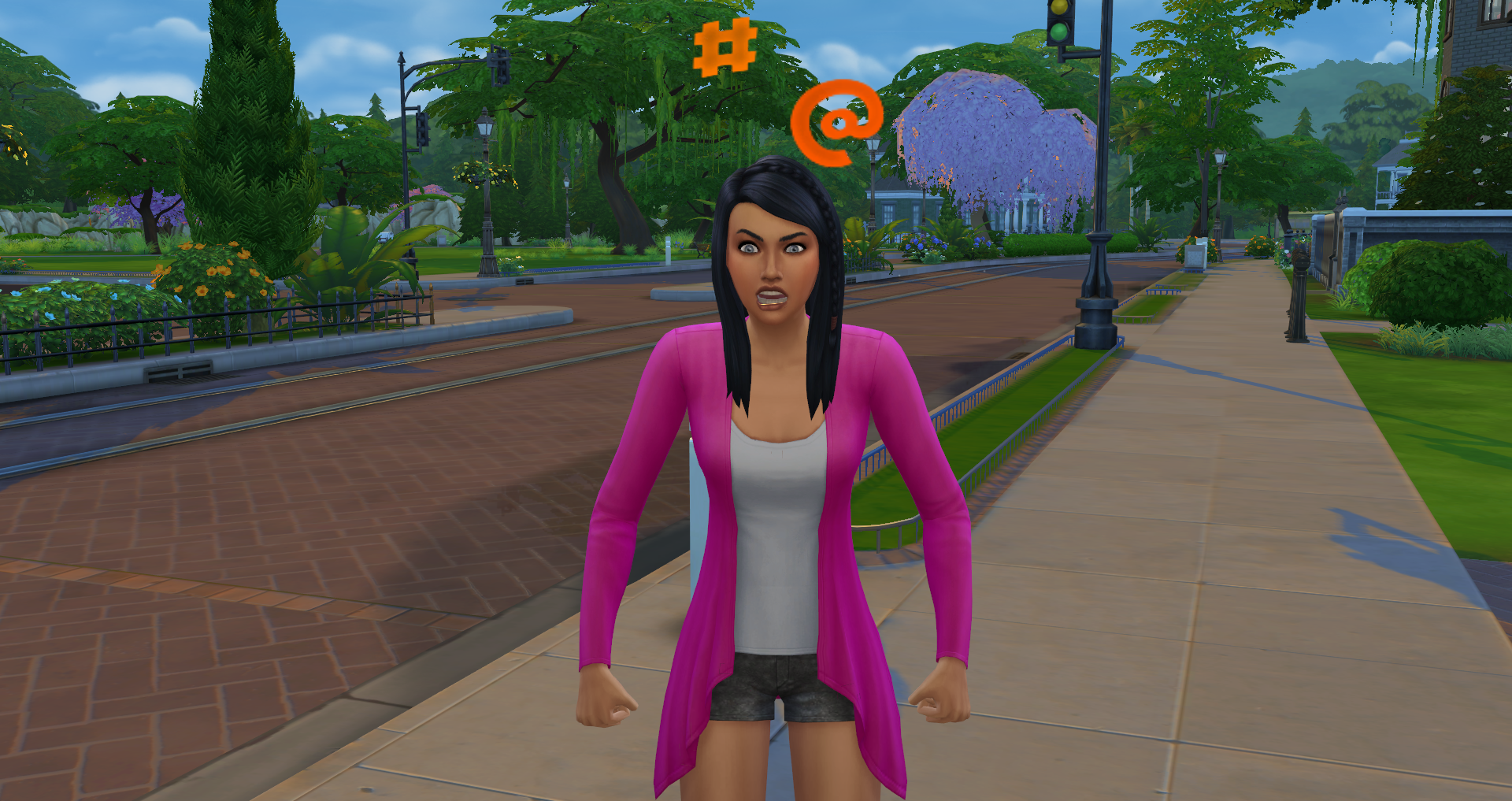
During this time Teens will be engulfed in anger, and will typically act out more often. Parents can help ease the burden by performing the following interactions: “Talk Through Mood Swing”, “Encourage to Redirect Anger”, and “Criticize Mood Swing”.
Parenting Skill
The Sims 4 Parenthood introduces the all-new Parenting Skill. Sims can master this skill by Parenting their Children, or reading the Parenting Skill Books. Sims with a higher Parenting Skill will unlock new parenting interactions that shape the behavior of their children.
A skilled parent knows when to influence, when to encourage, and when to discipline children. They know the best way to clean a kid up and how to solve their needs. The Parenting skill is built by caring for children, talking to other parents, and researching on the computer. Increasing this skill will unlock new ways to parent children and solve their motives.
Parenting Level 1 – Sims can now encourage kids’ behavior and influence kids to clean. They can also reprimand bad behavior by asking the child not to do that action, or simply yelling at the child to stop.
Parenting Level 2 – Sims can now influence kids to do homework. They can also firmly tell their kids not to do bad behaviors, and can select more options when responding to a teaching moment.
Parenting Level 3 – Sims can help kids solve their basic motives like bladder, hygiene, and fun. They can also give parenting tips to other parents.
Parenting Level 4 – Sims can now give Time Outs. They will have more information on how their advice will impact their child’s development.
Parenting Level 5 – Sims can now ground children who misbehave. For a softer approach they can discuss the bad behavior and hug it out. Parents also have access to more ways to solve a kid’s motives.
Parenting Level 6 – Sims can now make other parents feel better when parenthood gets tough. When caring for babies they can now see what their baby needs.
Parenting Level 7 – Sims can now more effectively solve their kids’ motives. Parents also can more effectively influence their children to perform certain actions.
Parenting Level 8 – Sims now have a third option for all teaching moments. They can also more effectively perform discipline socials.
Parenting Level 9 – Sims are now persuasive enough that they always succeed when influencing a kid to do an action, like cleaning the dishes. Parents also know how all of their advice in teaching moments will play out.
Parenting Level 10 – Sims can perform the Super Efficient Baby Care interactions on babies to solve all of the babies needs at once. While performing a lot of parenting duties Sims can now enter Full Parent mode where their own needs won’t be much of a problem.
Full Parent Mode
Once a Sim reaches level 10 in the Parenting Skill, they have the ability to enter “Full Parent Mode” and slow the decay of their own needs. To trigger Full Parent Mode, a parent will need to preform multiple concurrent interactions using the “Parenting” social.
Sims who enter “Full Parent Mode” will receive a +2 Happy Moodlet that lasts for 2 hours, be glistened with green, gold, and white stars, and decrease their motive decay by 75%.

Character Values
Character Values are the main focal point of the game. Character Values are a behavioral system that determine a Sim’s ability to behave an adapt effectively in everyday life. Starting as Toddlers, Sims (and their parents) have the ability to shape their entire life.
❗ Character Values can be tracked via the Traits section of the Simology panel.



There are 5 Character Values that can be positive or negative: Manners, Responsibility, Conflict Resolution, Empathy, and Emotional Control. Toddlers, Children, and Teens gain and lose character values based on their actions and the actions of their parents. Everything from parenting style, mood swings, childhood phases, and new interactions play a role in determining what type of children your Sims will raise.
When hovering over each of the value icons, explanations can be seen on how to positively and negatively affects the values. Each of the values also have one negative and one positive trait attached to them. These traits are “Inherited Traits”.
Inherited Traits are a new type of trait category for Sims. Once a Sim ages up to a Young Adult, their Character Values are locked in, and they will receive a unique Trait depending where their Character Values lie. They can only receive one trait per Character Value, and can definitely have a mix of positive and negative traits.
Emotional Control
Emotional Control – Sims who have the Emotional Control Trait can relieve negative moods by jogging, listening to certain music, blogging on the computer, or playing an instrument. In general, their negative emotions will go away faster than other Sims. (From Having Positive Emotional Control)
Uncontrolled Emotions – Sims with Uncontrolled Emotions won’t be able to relieve their negative emotions as fast as other Sims. When they have strong negative emotions, they may have an emotional meltdown. (From Having Negative Emotional Control)
Manners
Good Manners – Sims with Good Manners won’t want to do any gross manners interactions, at least not in front of anyone. They also have a new Polite Introduction and can gain friendly relationships faster. Good Mannered Sims can also Offer Gratitude to the Host of a house they are visiting. (From Having Positive Manners)
Bad Manners – Sims with Bad Manners can try to be Friendly, but will always fail using certain socials. They will often use gross manners, swear a lot, and never want to do the dishes. (From Having Negative Manners)
Empathy
Compassionate – Compassionate Sims can help other Sims relieve their negative emotions. They can also empathize with them by Sharing Emotional Burdens. However, these Sims get stressed when being Mean. (From Having Positive Empathy)
Insensitive – Insensitive Sims are able to Question other Sims’ negative emotions. They can also Instigate other Sims. Insensitive Sims will have a higher chance of failing socially when talking to Sims with bad emotions. (From Having Negative Empathy)
Responsibility
Responsible – Responsible Sims perform better at their jobs and can teach children and teens how to be responsible. (From Having Positive Responsibility)
Irresponsible – Irresponsible Sims are uncomfortable at work, but ignoring bills and slacking off brings them joy. They may also encounter new situations when at work. (From Having Negative Responsibility)
Conflict Resolution
Mediator – Mediator Sims have a higher chance at successfully apologizing to other Sims and can Mediate the Forums. They can also mend differences with Sims they have not been friendly with for a long time. (From Having Positive Conflict Resolution)
Argumentative – Argumentative Sims don’t always start conversations on the right foot with Sims they don’t like. Successfully apologizing is harder and they do try to assert their correctness more often than not. (From Having Negative Conflict Resolution)
Once a Sim ages up to a Young Adult, their Character Values are locked in, and they will receive a unique Trait depending where their Character Values lie. Once a Sim reaches the “darker” end of the meter (positive or negative), they become eligible for the assigned trait. Values can increase and decrease depending on their actions, so be sure to keep an eye on the meter before they become Young Adults.
Depending on the traits the Sim starts with, they may have Character Values from the beginning. For example, a Sim with the Neat trait will start off with positive Manners, Sims with the Mean or Evil traits will start off with negative Empathy, and Toddlers with the Wild trait will start off with a tiny bit of negative Emotional Control. Even if you influence Character Values via traits, Sims can still change their value meters through actions.
Finally, there is no such thing as a right or wrong way to raise and influence children. If a parent believes their children should belch and fart in order to become a better person, then parents can reinforce that behavior with positive encouragement. If that is not the proper way to act, then the negative behavior can be punished and disciplined.
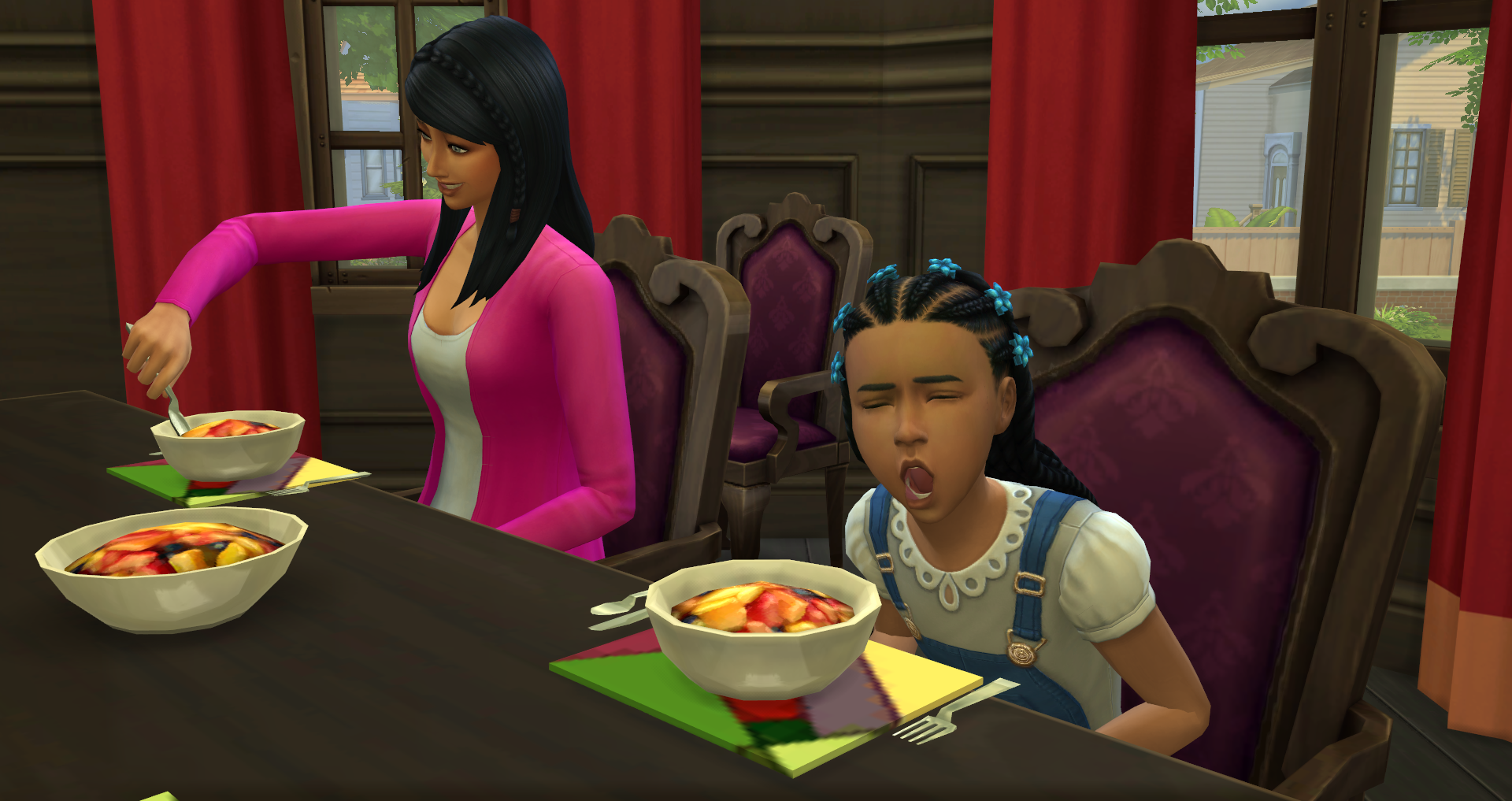
Character Value Behavior
As mentioned throughout the guide, the behavior exhibited by Toddlers, Children, and Teens has a direct influence on their character values. There are many new interactions that directly affect what type of value a child will receive. Discipline, Encouragement, Influence, and other Adult Parenting interactions also plays a role on shaping a child’s behavior.
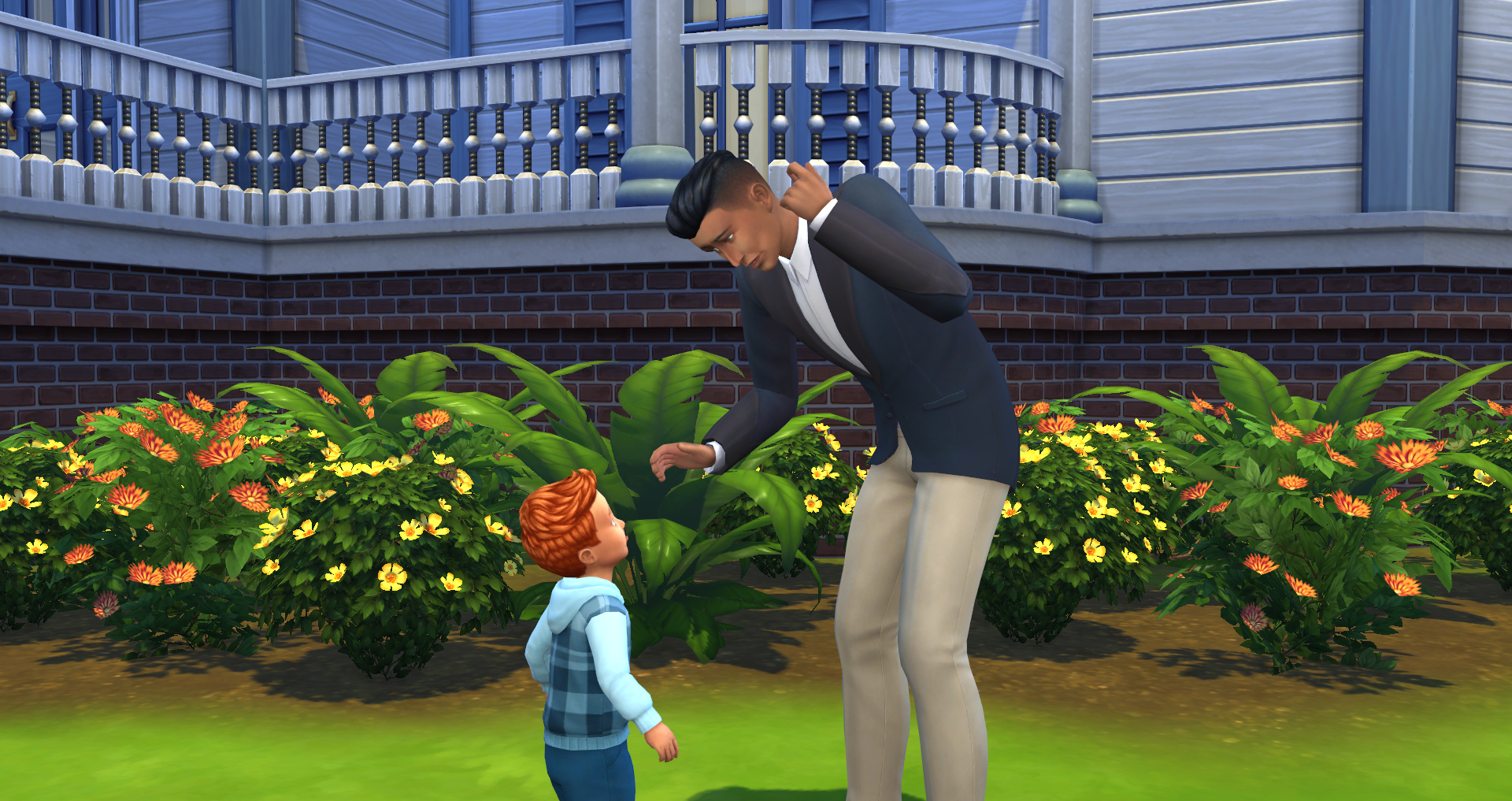
Below is a list of actions and behavior that positively and negatively affect Character Values. Remember, discipline, encouragement, influence, punishment, and Parenting in general, all contribute to ongoing positive and negative behavior.
- Behaviors that positively contribute to Responsibility include:
- Having the Perfectionist Trait
- Completing a School Project
- Doing Homework
- Getting Good Grades
- Making a Sack Lunch
- Teens performing well at their part-time job
- Taking out the trash
- Brushing Teeth
- Repairing broken objects
- Cleaning up toys from the Toybox
- Cleaning up a mess
- Behaviors that negatively contribute to Responsibility include:
- Having the Childish Trait
- Getting bad grades
- Missing school or part-time job
- Quitting part-time job
- Making a Mess
- Playing in Toilet
- Disobeying Grounding
- Breaking curfew
- Behaviors that positively contribute to Emotional Control:
- Having the Self-Assured Trait
- Writing in Journal
- Jog to Clear Mind when in a Negative Mood
- Listen to Classical to Wind Down when in a Negative Mood
- Playing Instruments with Emotion when in a Negative Mood
- Play with Emotion when in a Negative Mood
- Blogging About Feelings when in a Negative Mood
- Behaviors that negatively contribute to Emotional Control:
- Having the Jealous or Insane Trait
- Having an Emotional Breakdown
- Shoving or biting another Sim
- Hitting another Sim
- Smashing a dollhouse
- Destroying a School Project
- Biting a Sim (Toddlers)
- Behaviors that positively contribute to Empathy include:
- Having the Good Trait
- Volunteering as a Family
- Playing with the Doctor Playset
- Asking about Negative Moods
- Calm Down, Cheer Up, or Console about Death socials
- Behaviors that negatively contribute to Empathy include:
- Having the Mean or Evil Trait
- Mean socials
- Yelling at another Sim
- Trolling on the Computer
- Hitting a Stuffed Animal
- Laugh at Embarrassment or Mock Sadness socials
- Belittle Anger, Downplay Stress, or Scoff at Discomfort socials
- Behaviors that positively contribute to Manners include:
- Having the Neat Trait
- Parents Teaching to Say Please and Thank You
- Friendly Introductions
- Setting the Table
- Cleaning up dishes
- Giving Compliments
- Behaviors that negatively contribute to Manners include:
- Having the Slob Trait
- Belching and Farting
- Swearing
- Rude Introductions
- Toddlers taking off clothes around Strangers
- Behaviors that positively contribute to Conflict Resolution:
- Having the Outgoing Trait
- Reconciling after Arguing
- Apologizing after a Negative Interaction
- Beg for Forgiveness, Find Common Ground, or Try to Chat socials
- Parents Teaching to Say Sorry
- Make Peace after Fight social
- Try to Fix Bad Relationship
- Behaviors that negatively contribute to Conflict Resolution:
- Having the Hot Headed Trait
- Declaring an enemy
- Having a Despised relationship
- Fighting other Sims
- Getting into Arguments
Build/Buy Mode Objects
The Sims 4 Parenthood includes 93 buy and build mode items. This includes objects, build items, styled rooms, and every other item that was included with the game. The slideshow below contains 89 of these objects, with the “Styled Rooms” listed right below.
The slideshow begins with the “Bro Hill Single Bed” and ends with the “Metal Frame Single Bed”. If you prefer to view the images individually, check out the album on Flickr.
Styled Rooms
